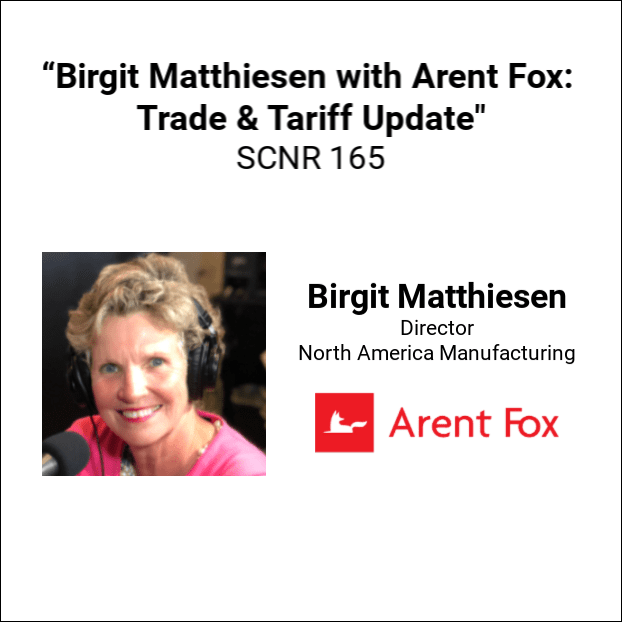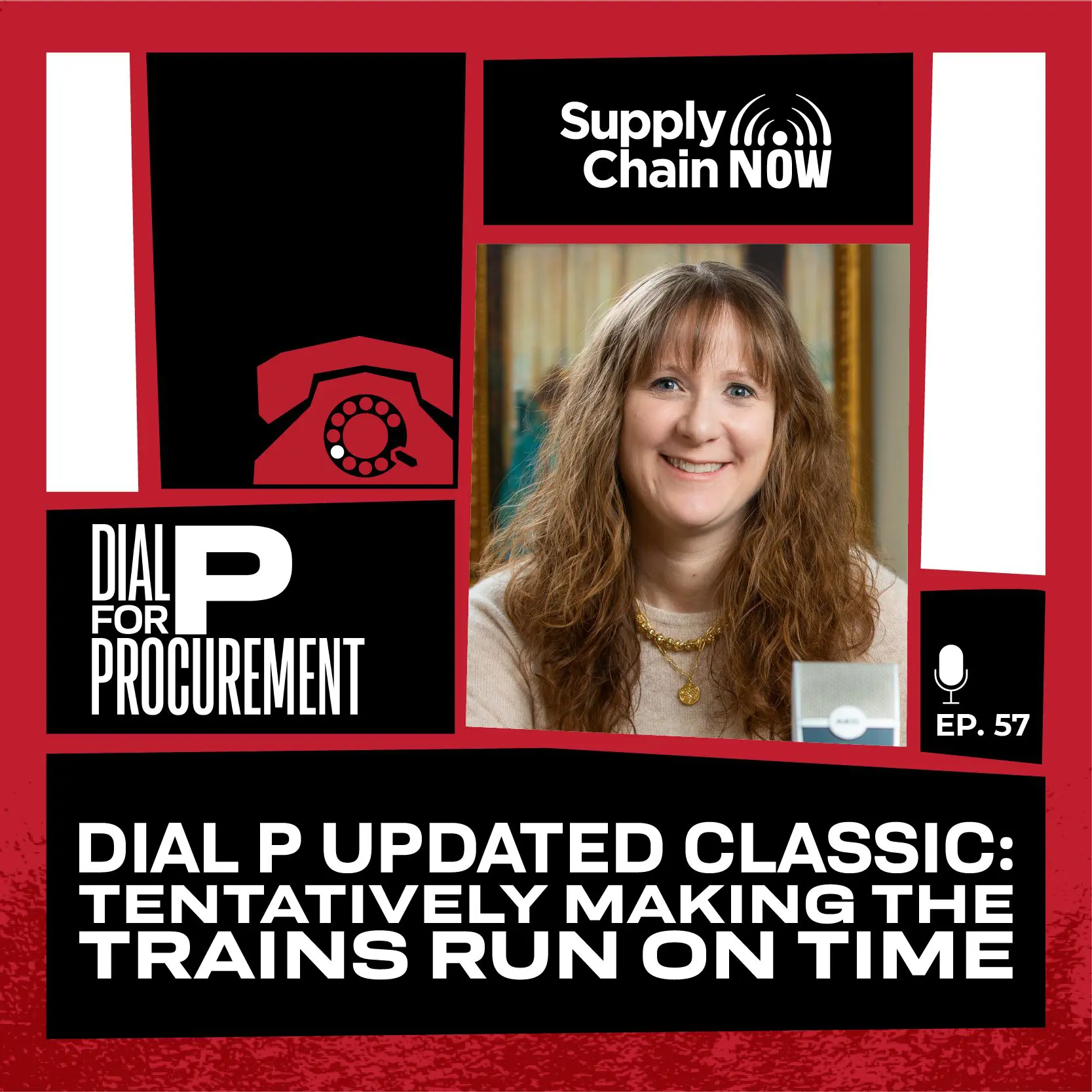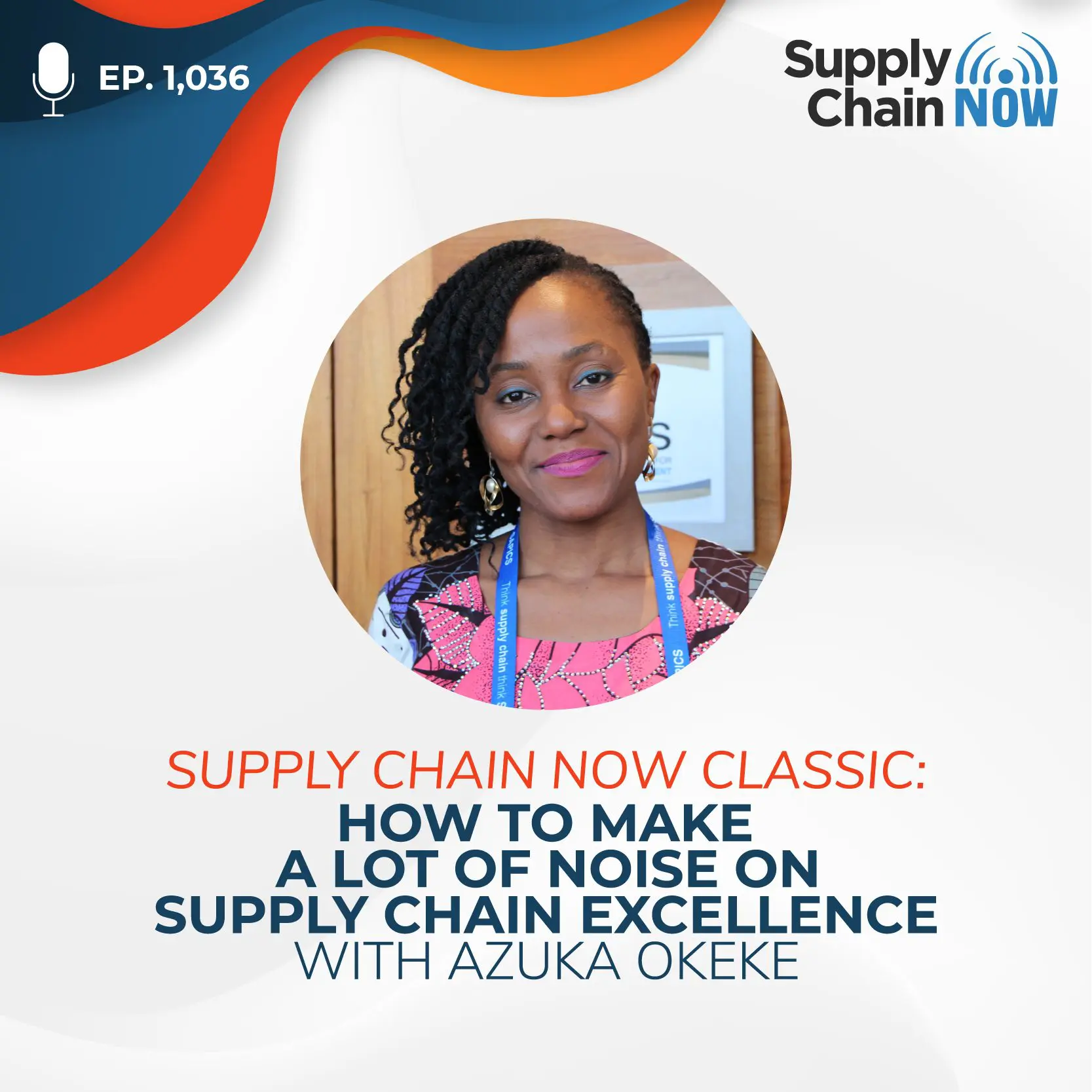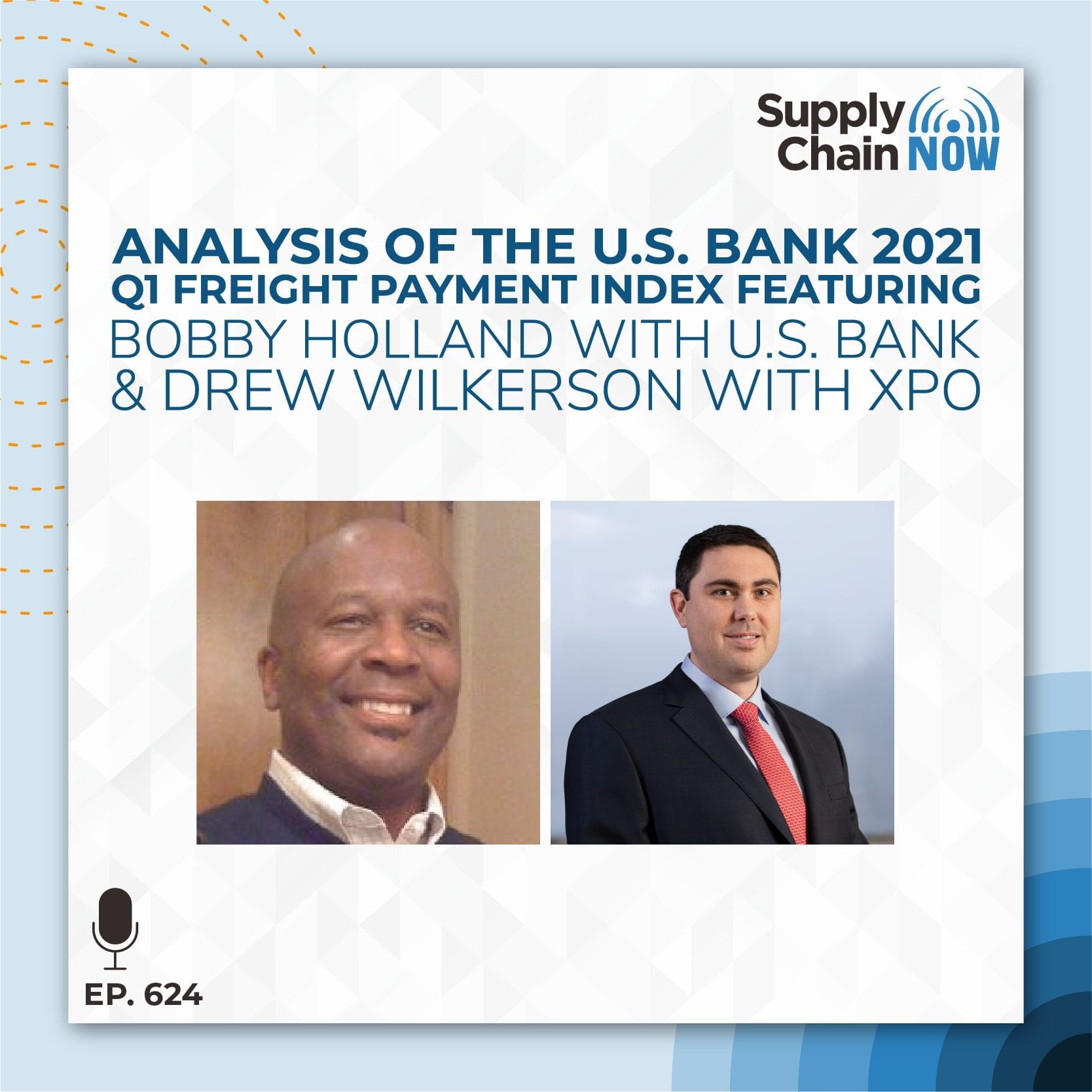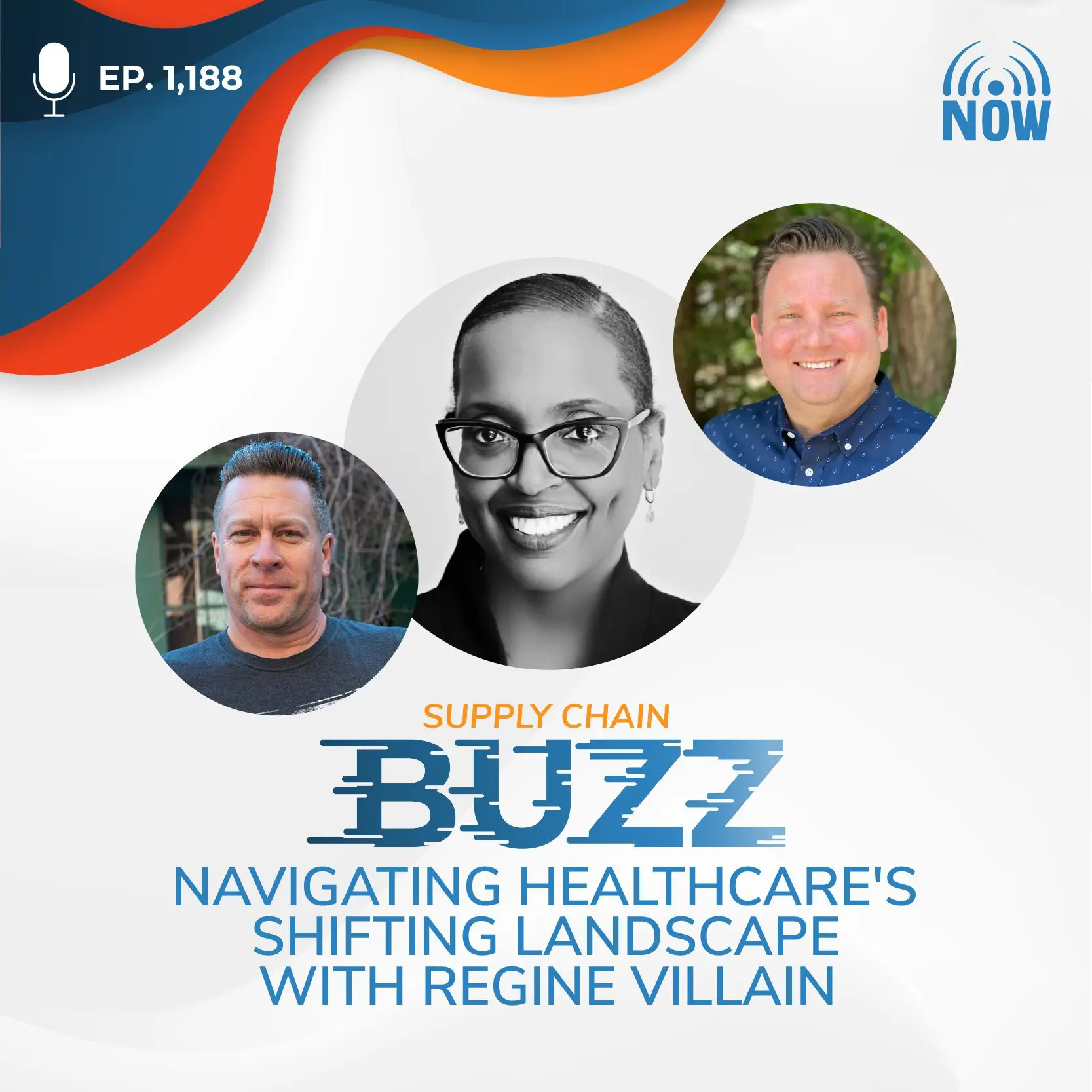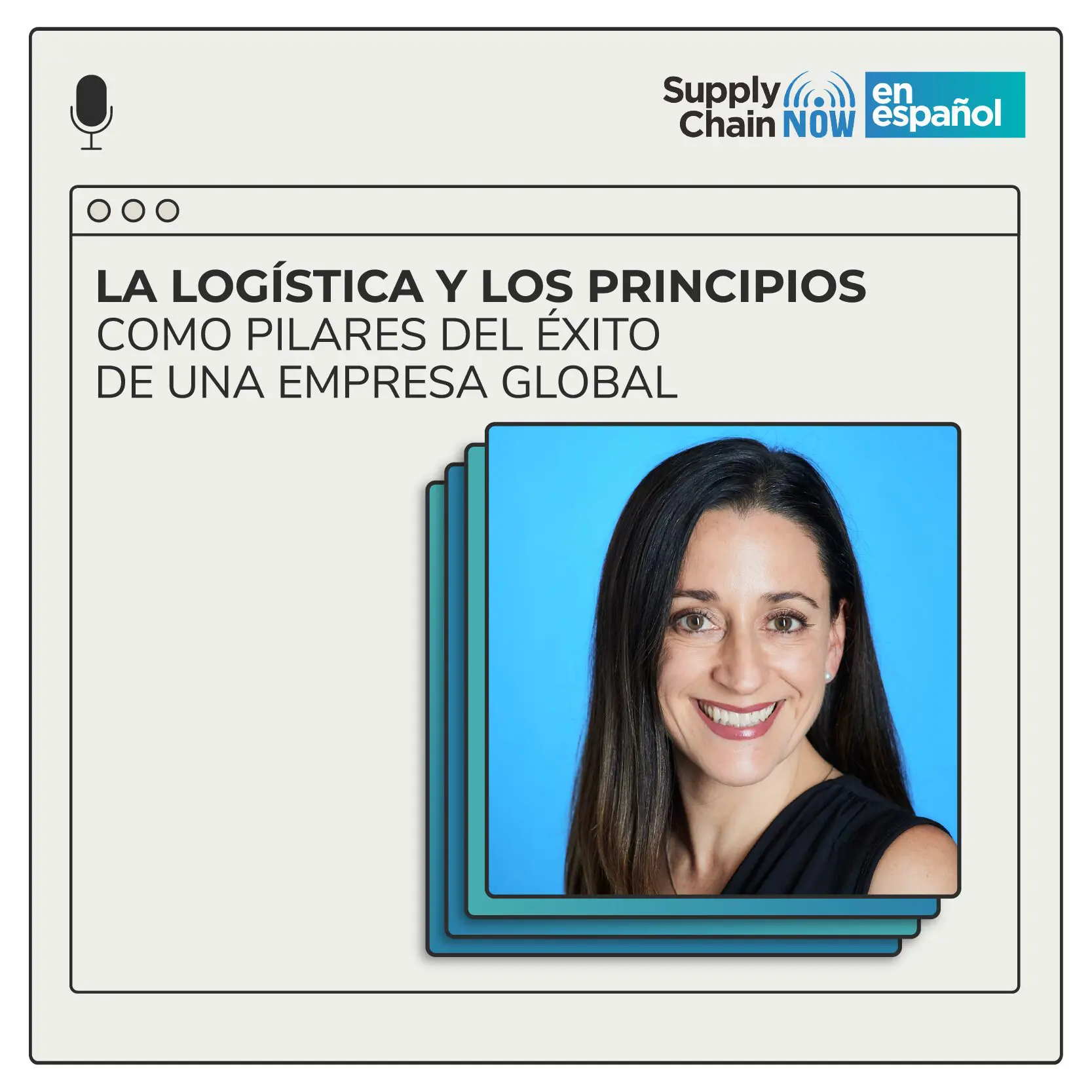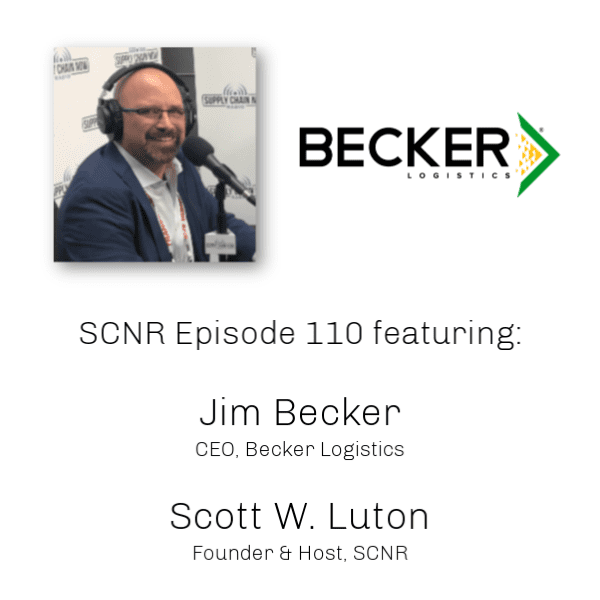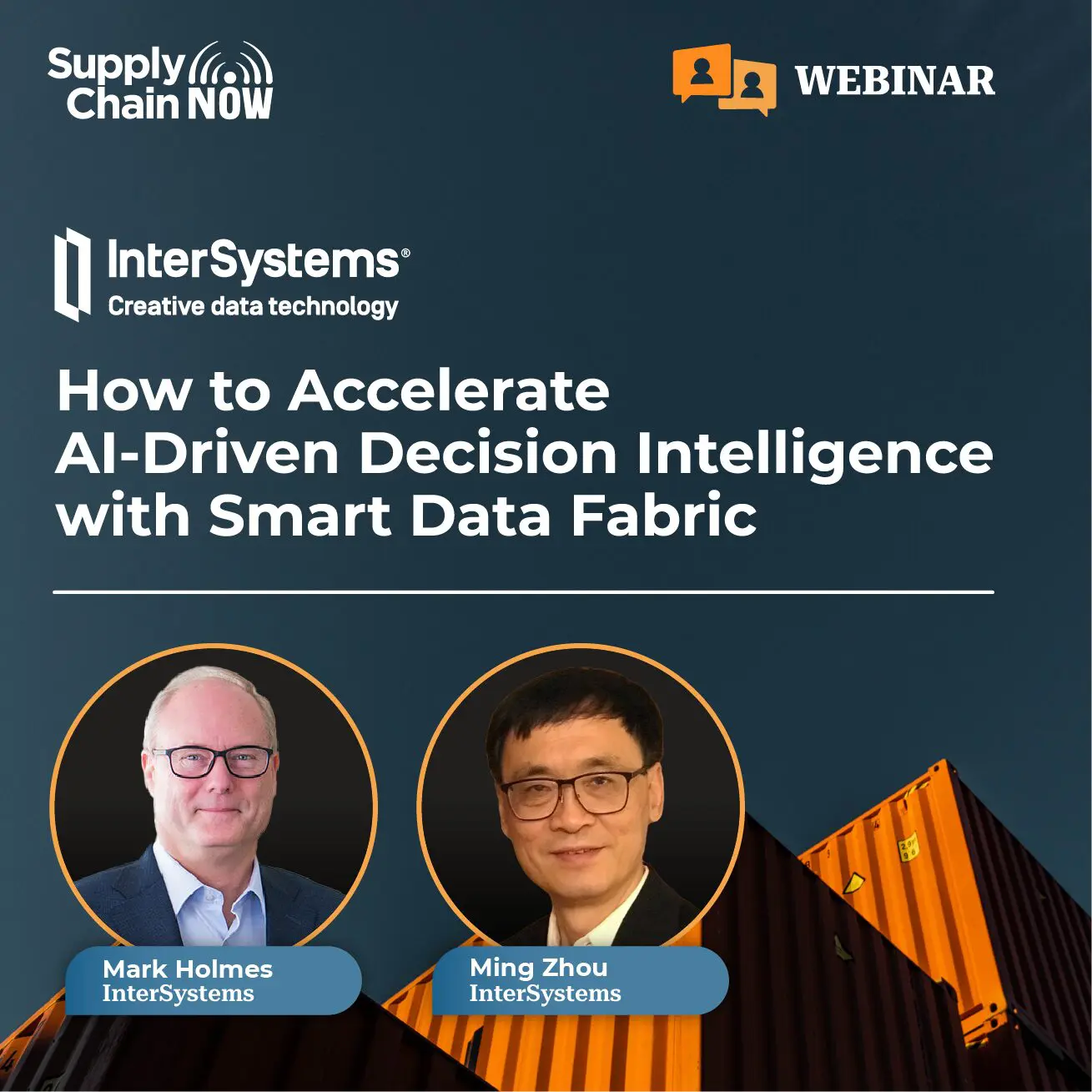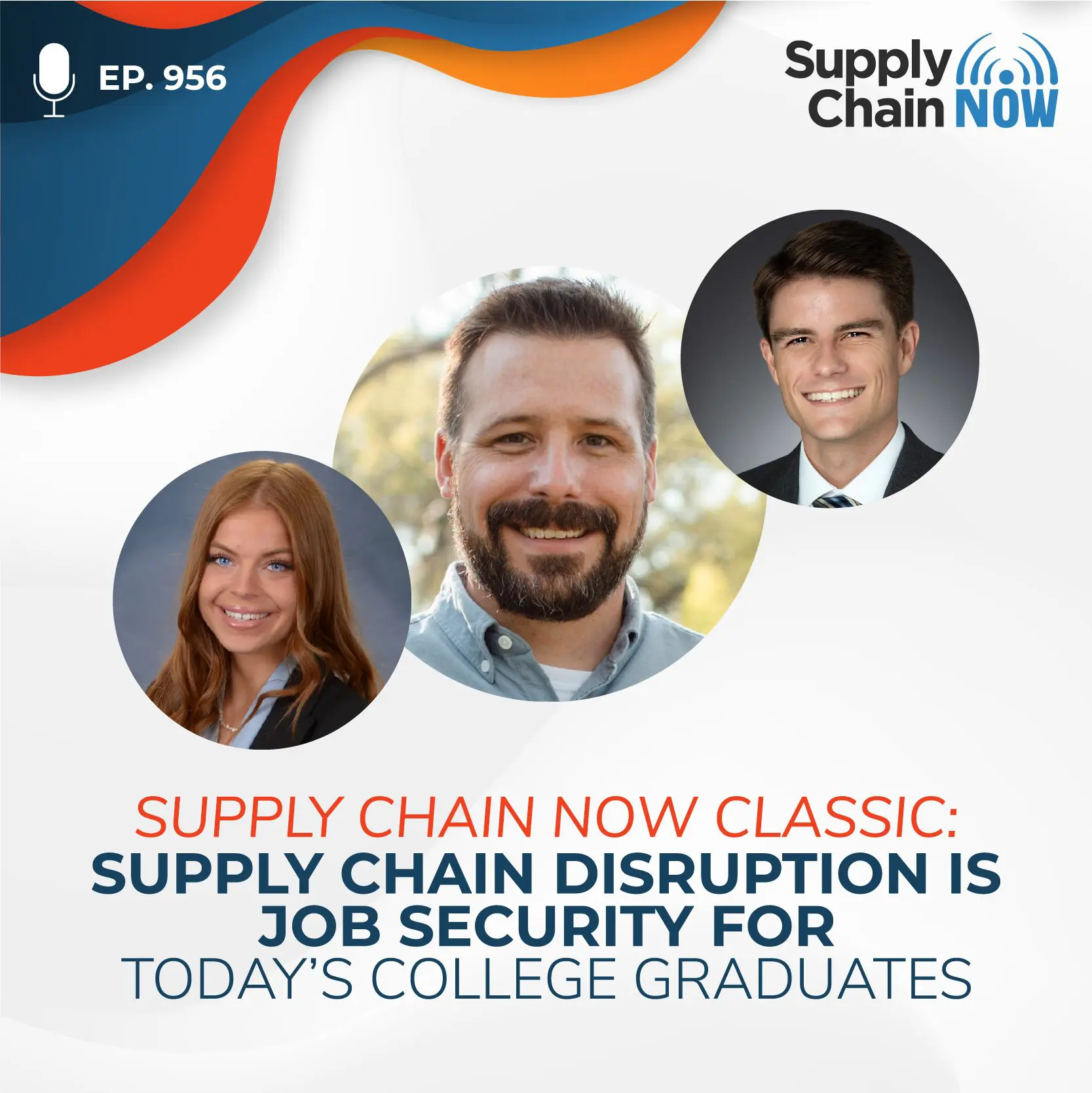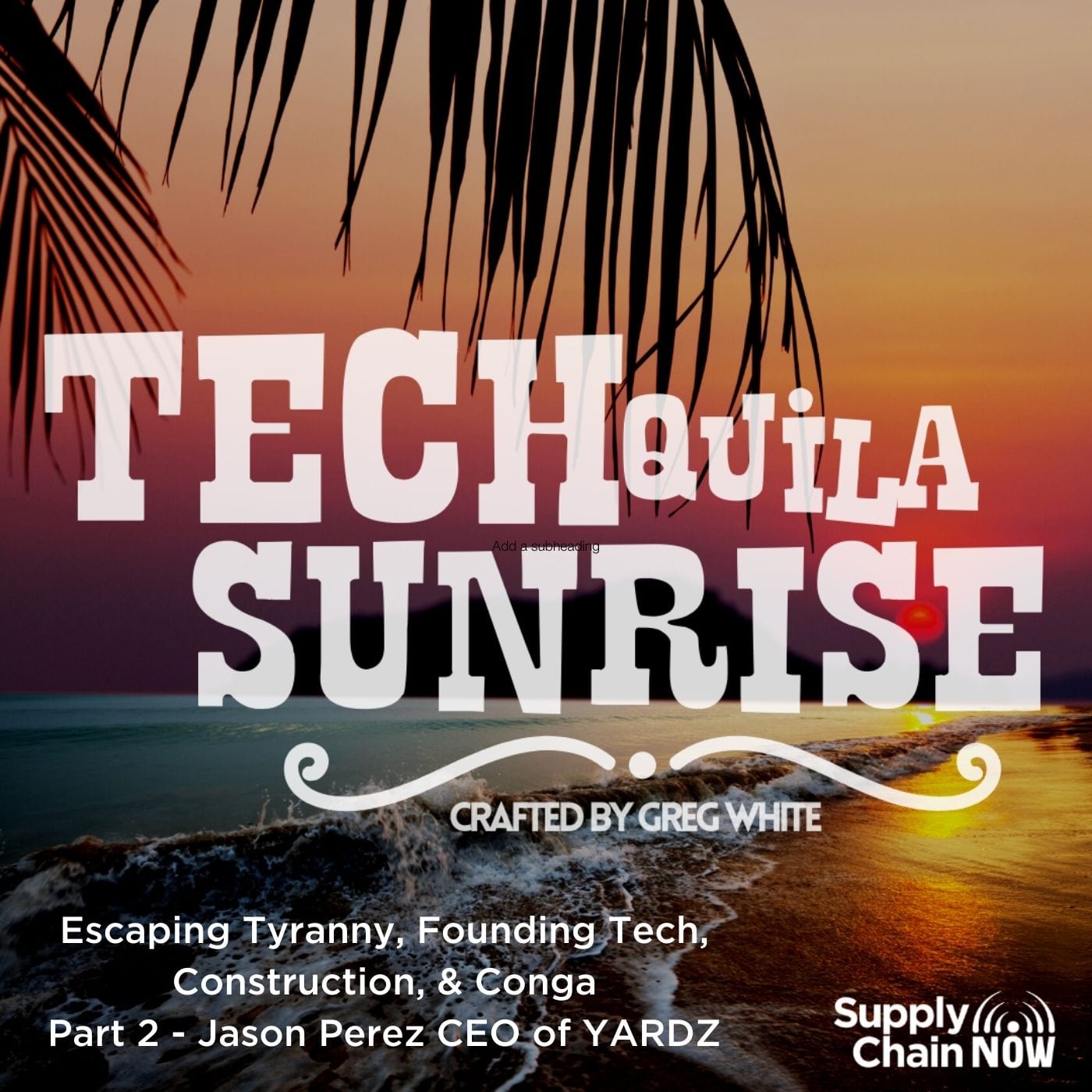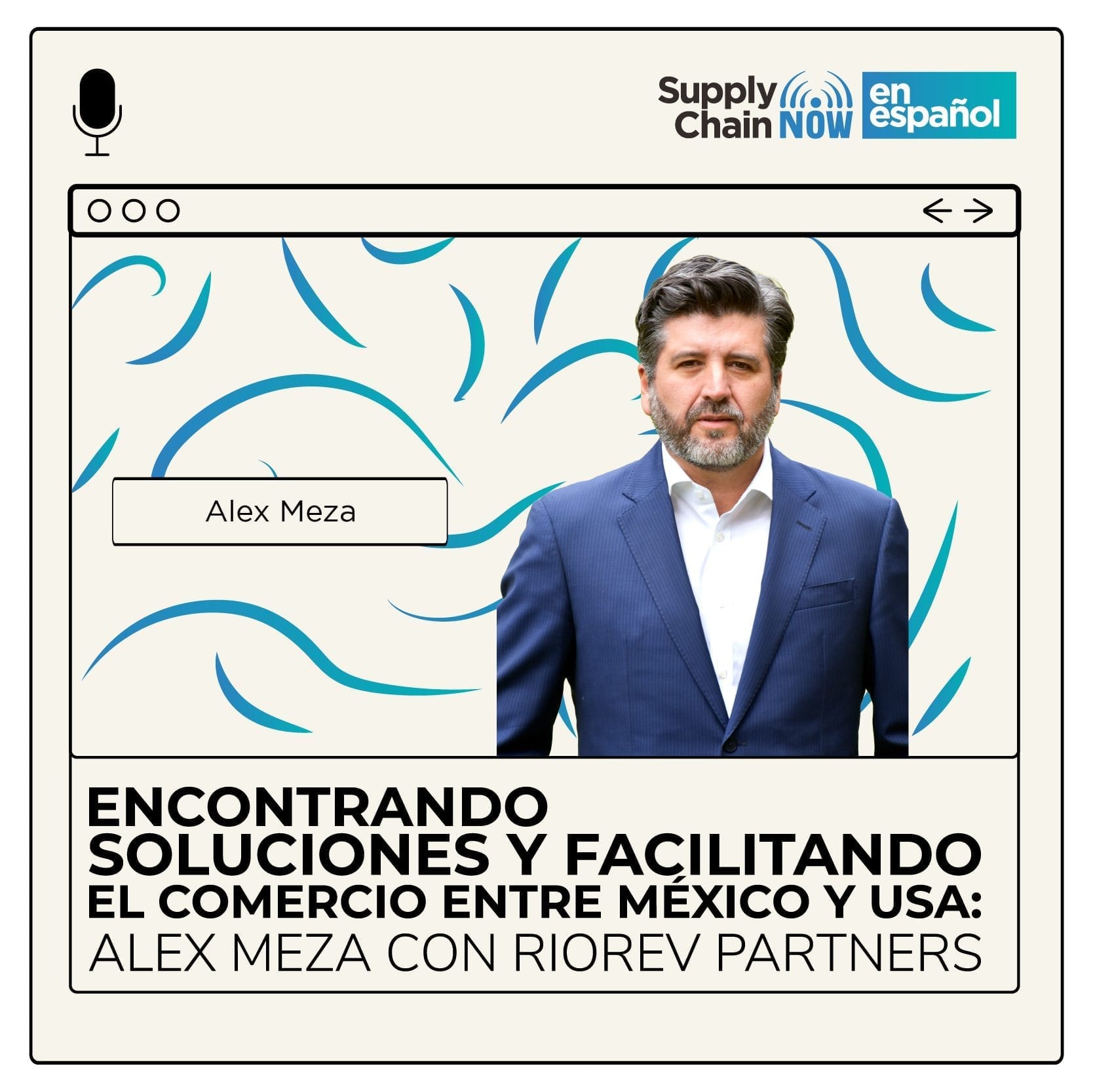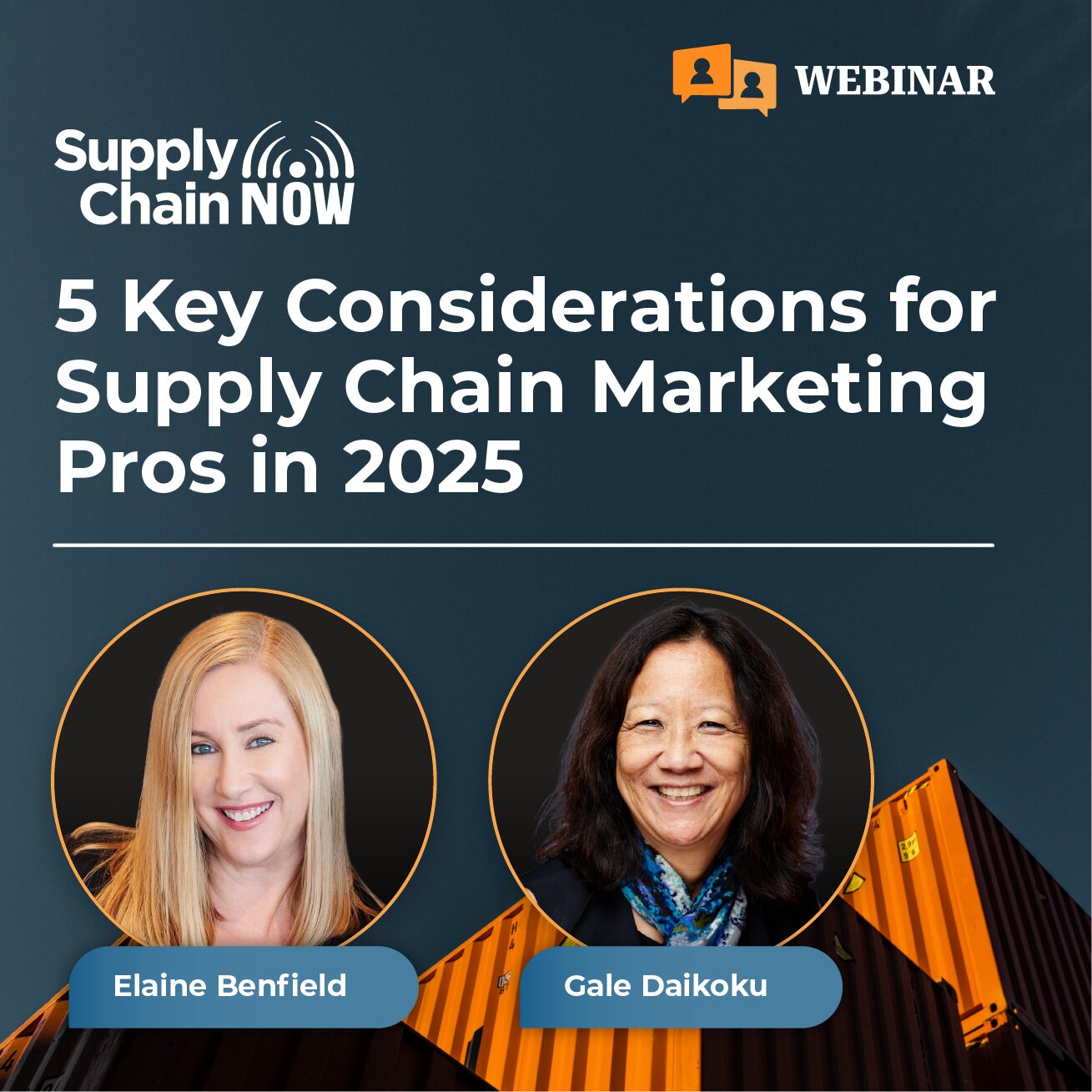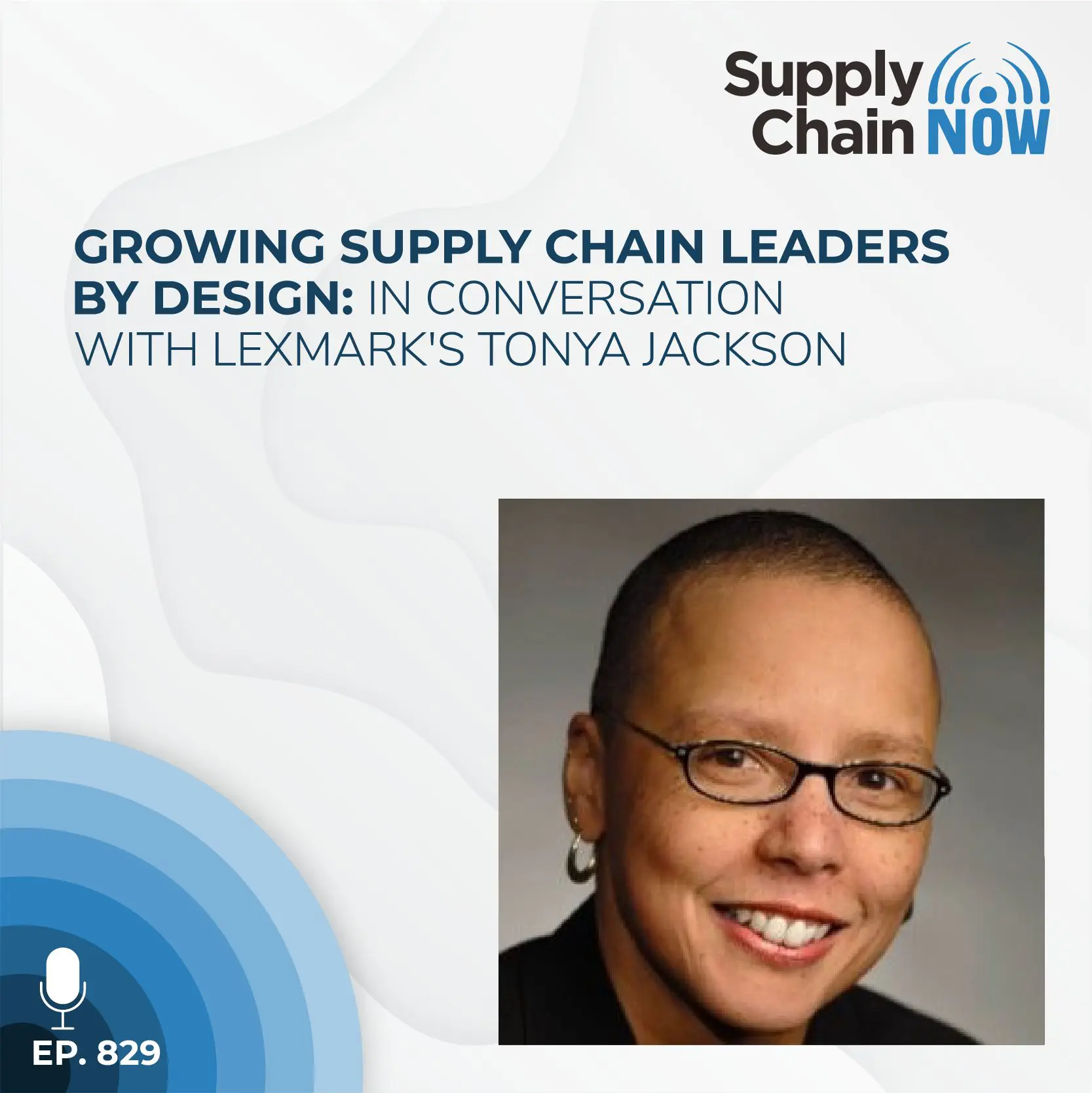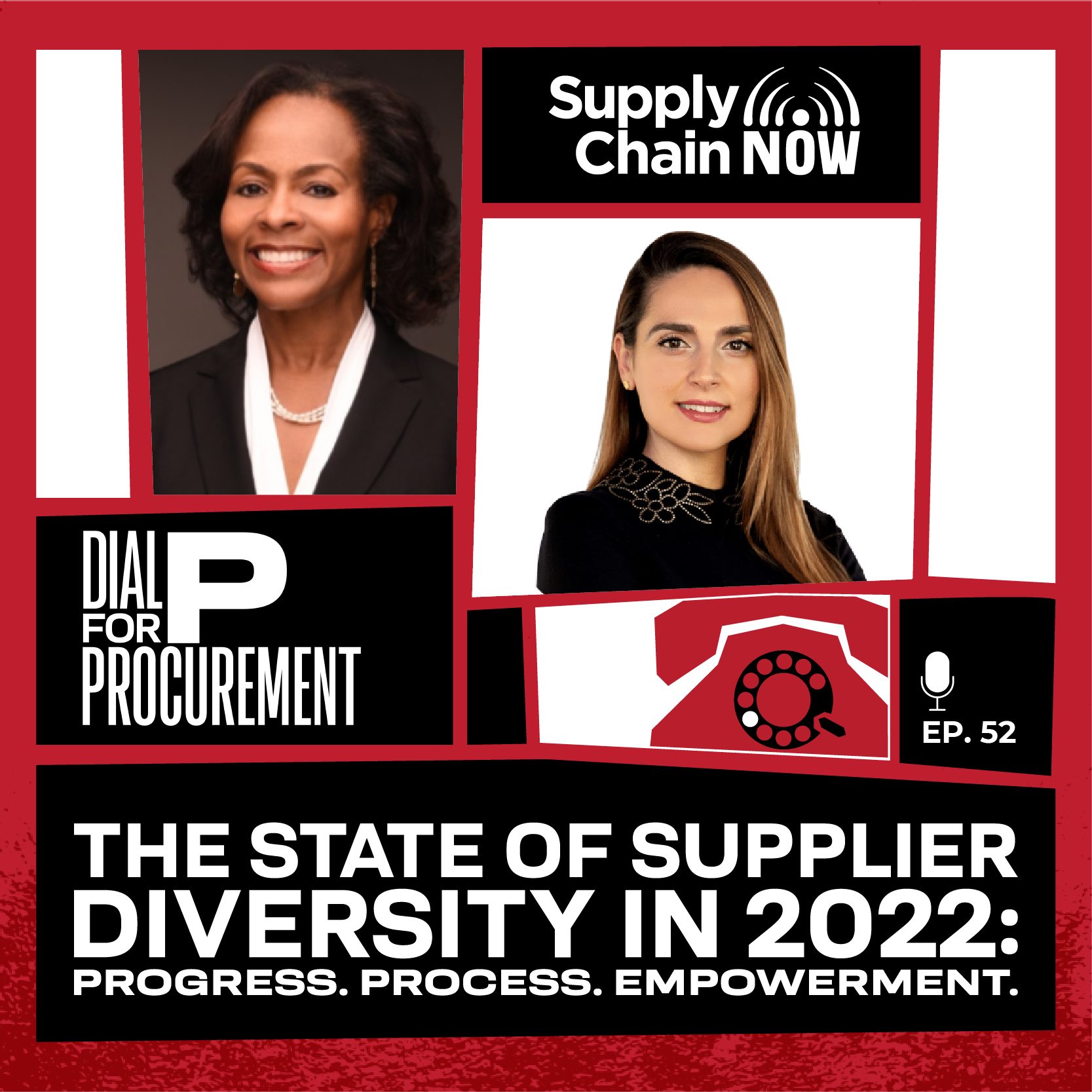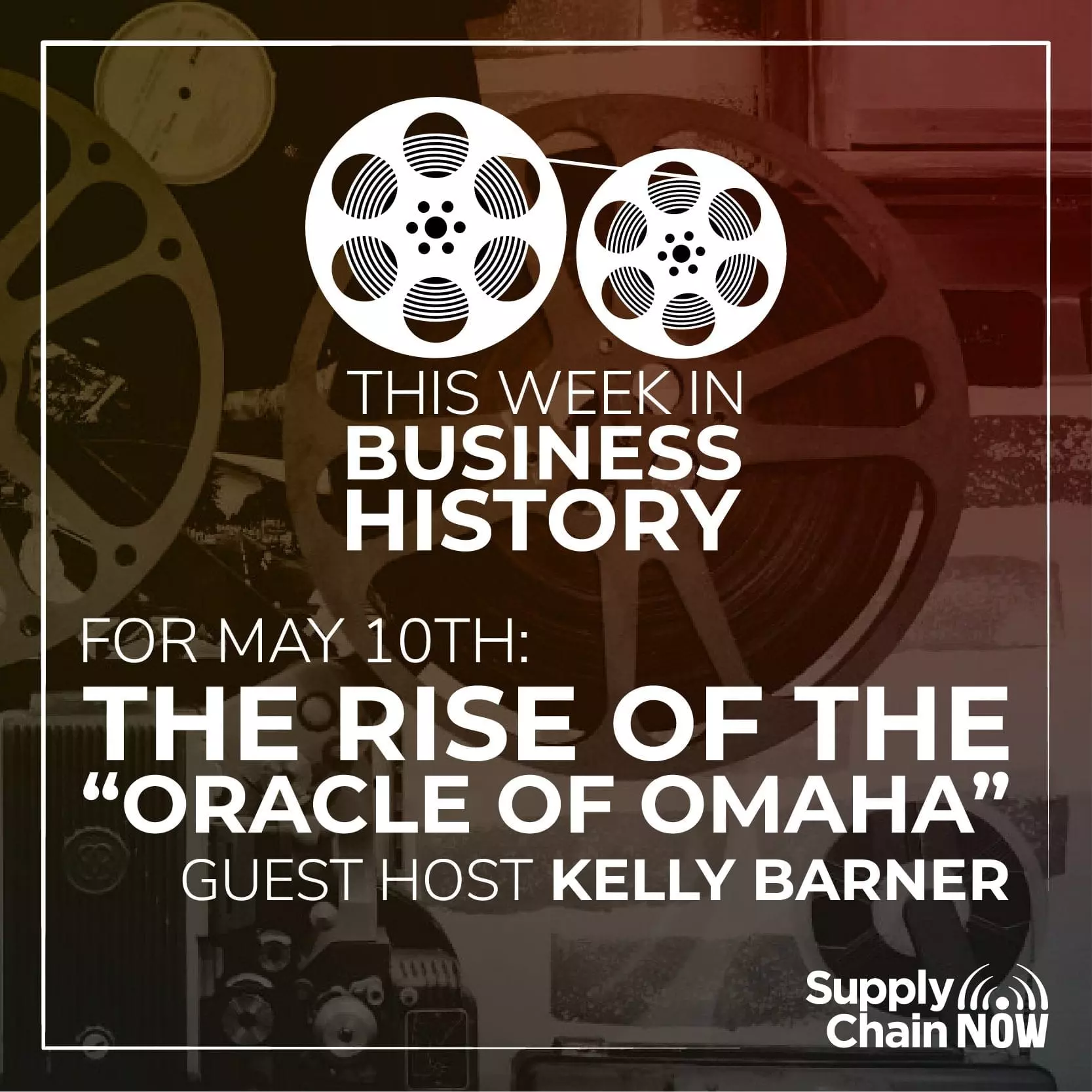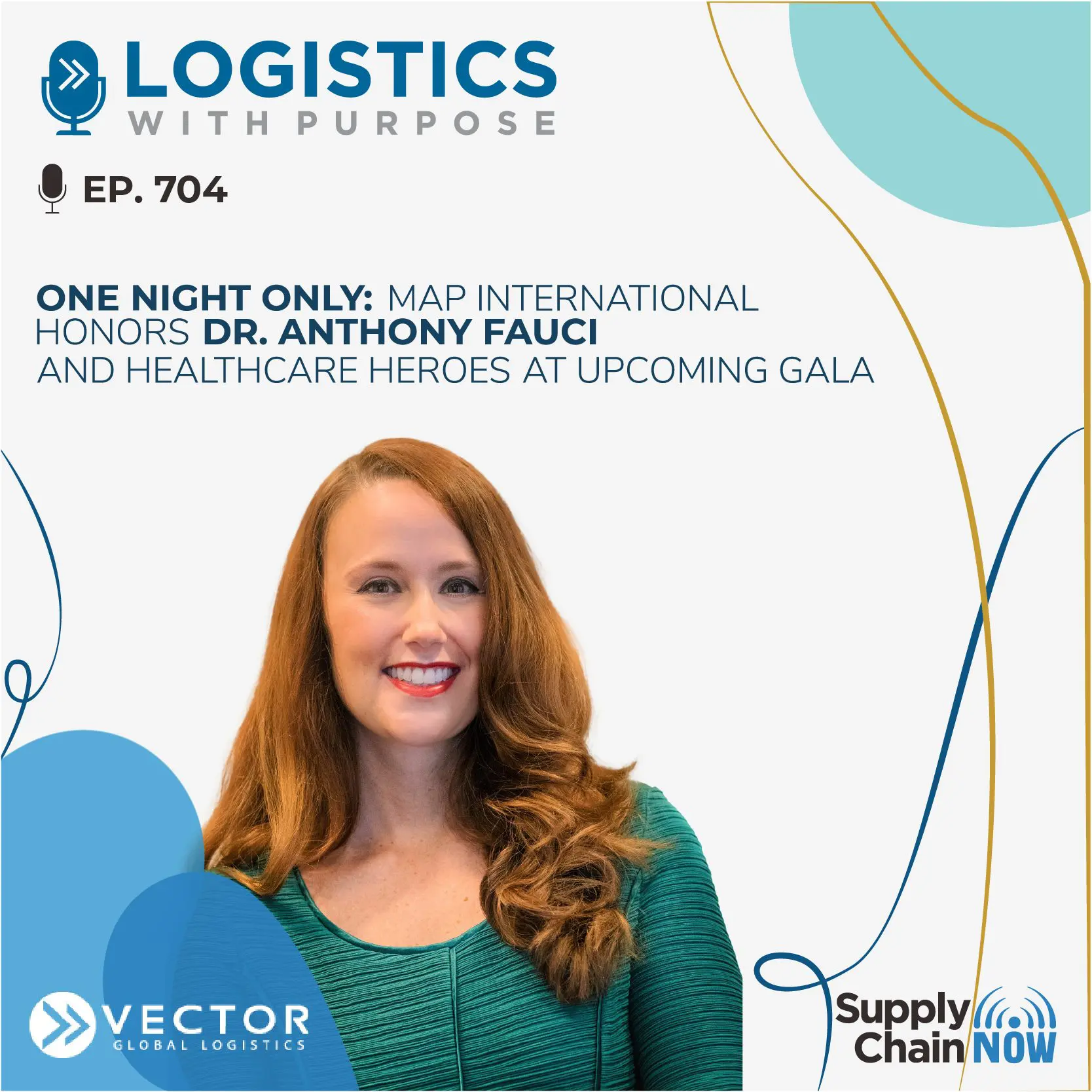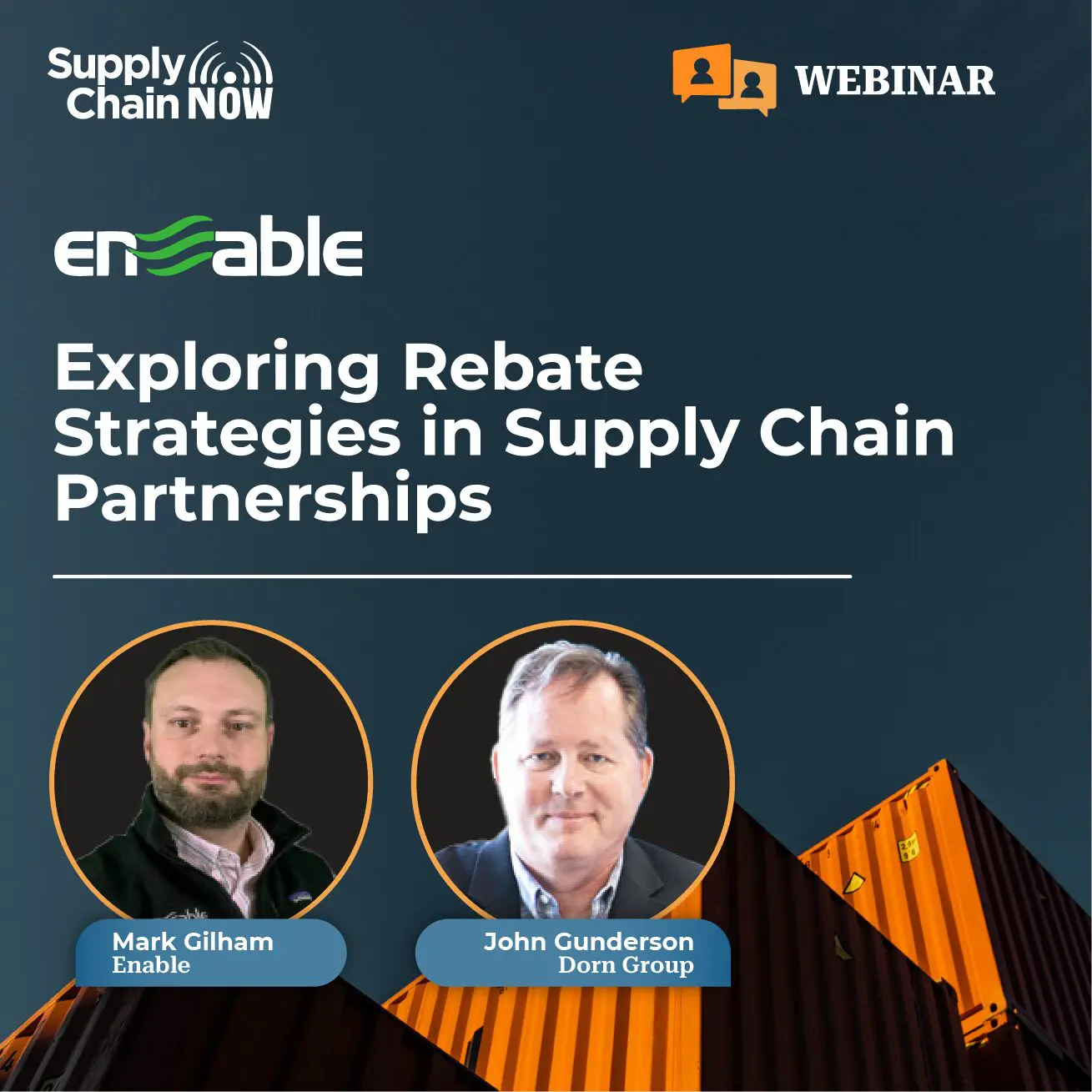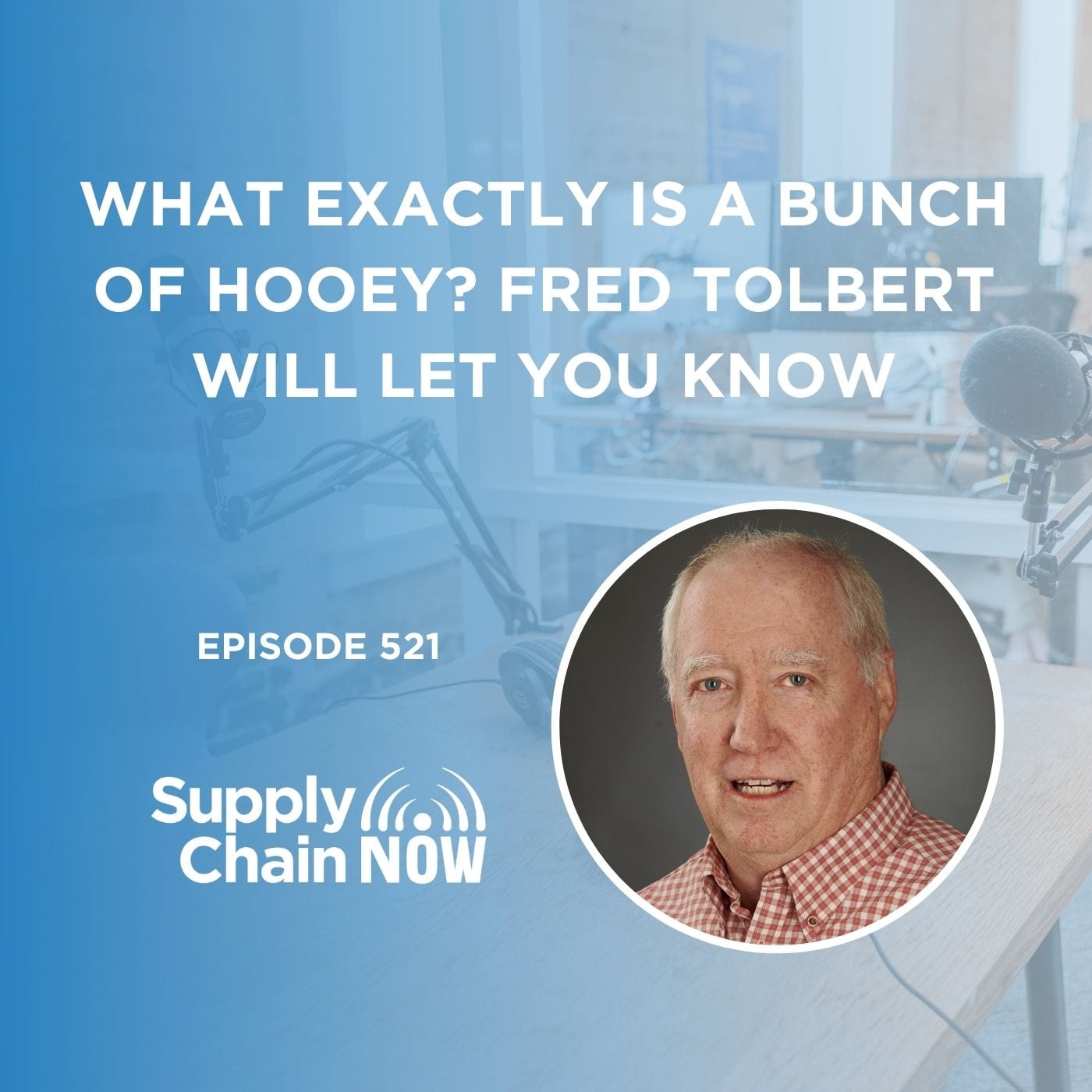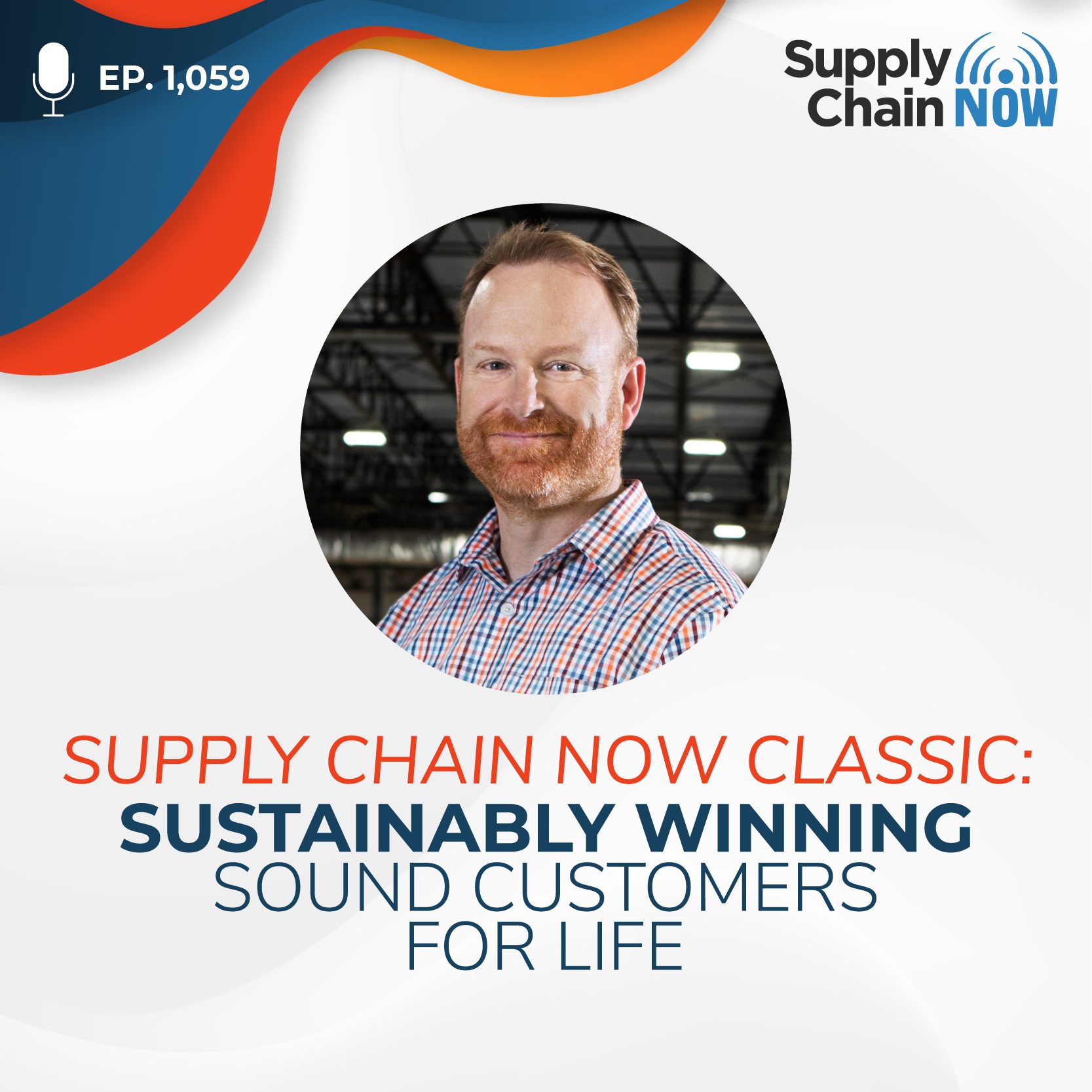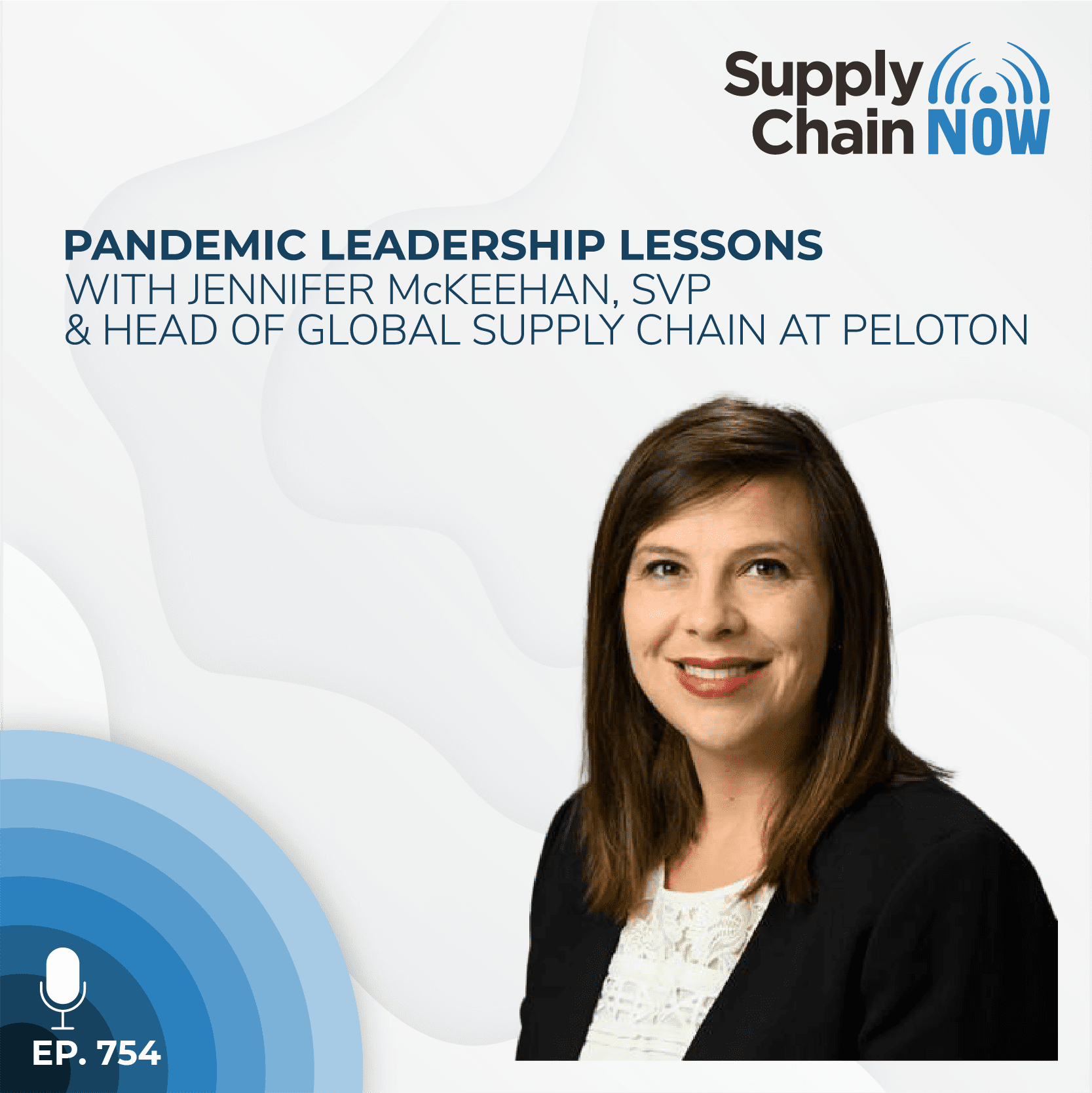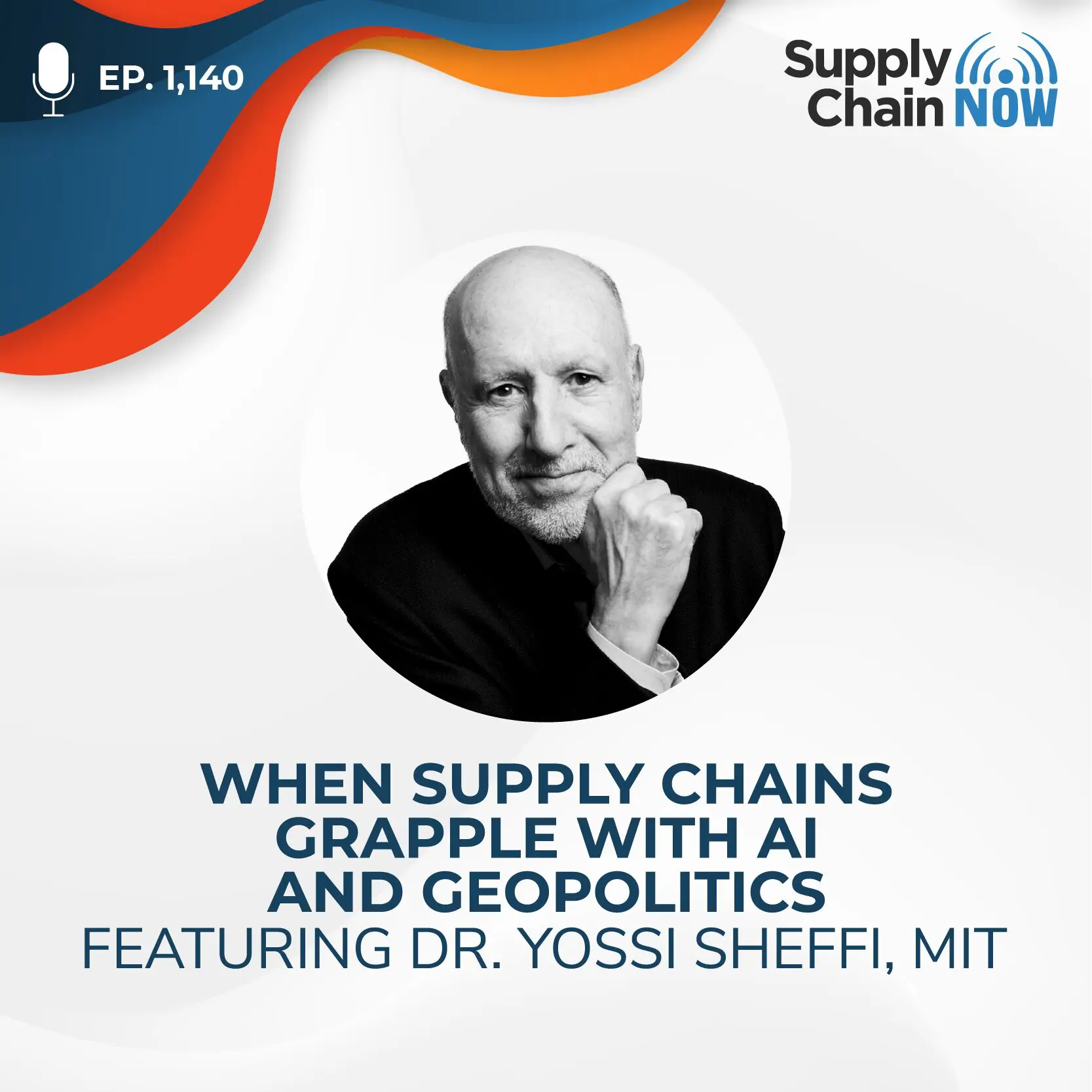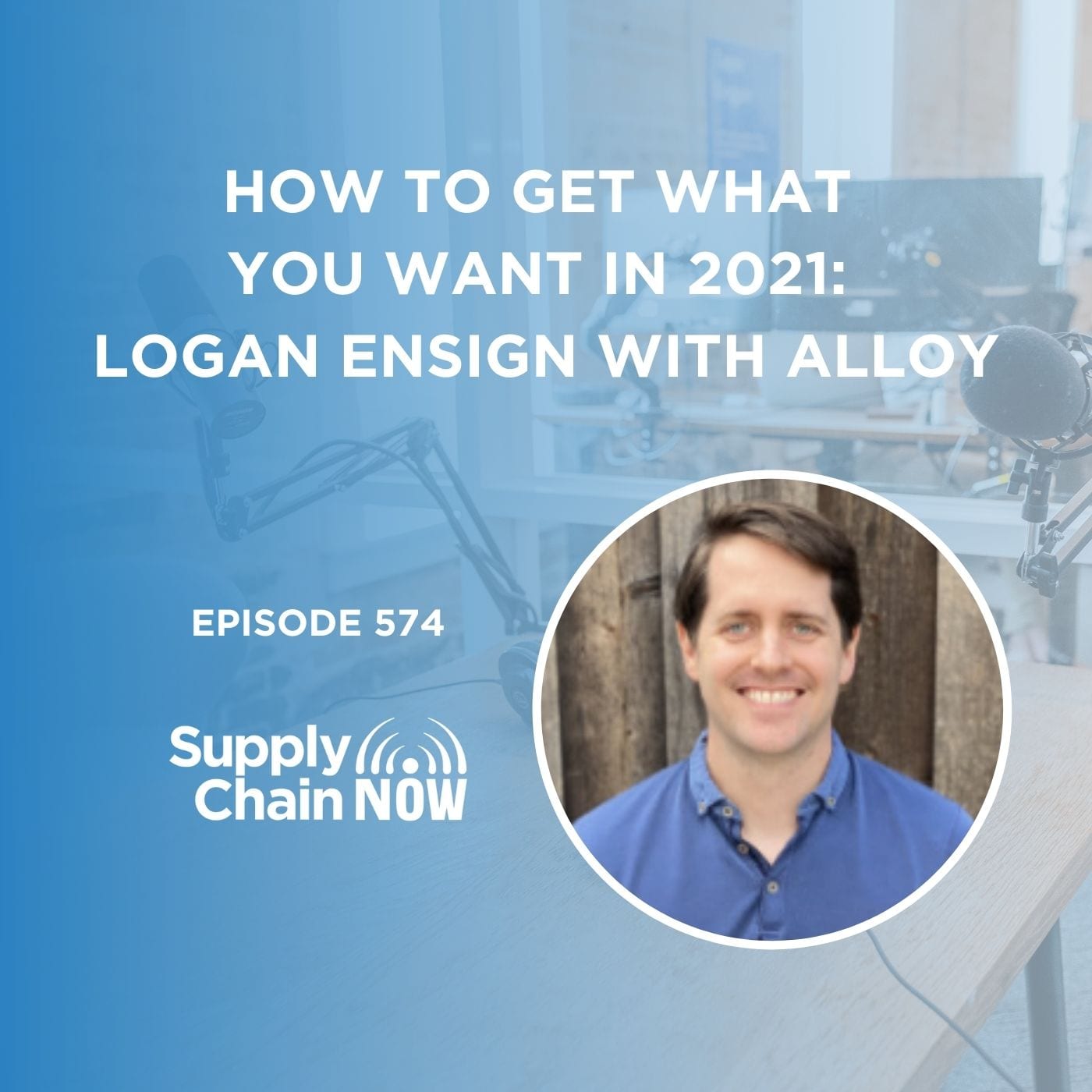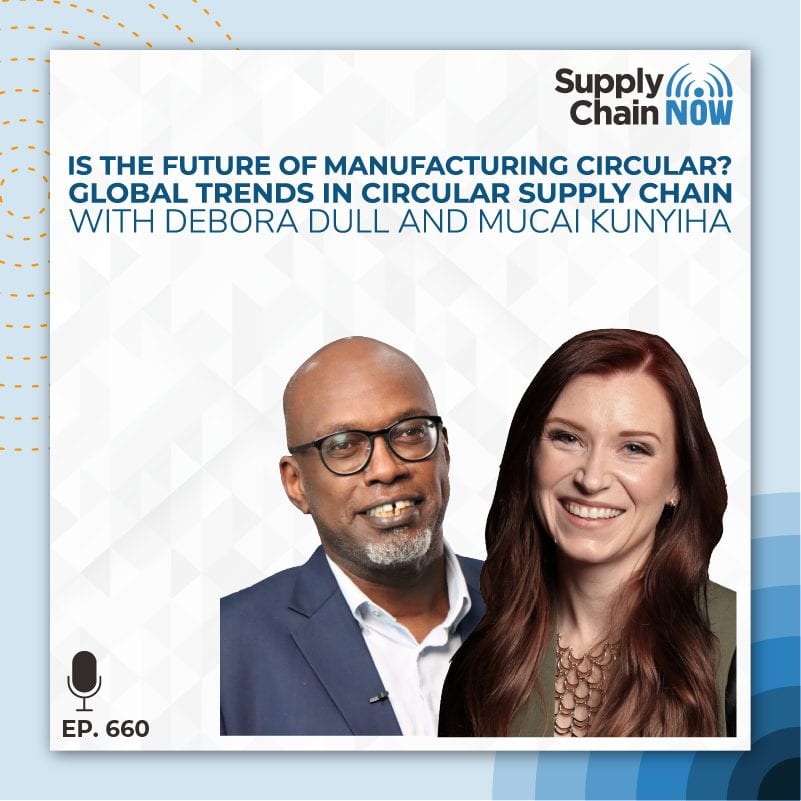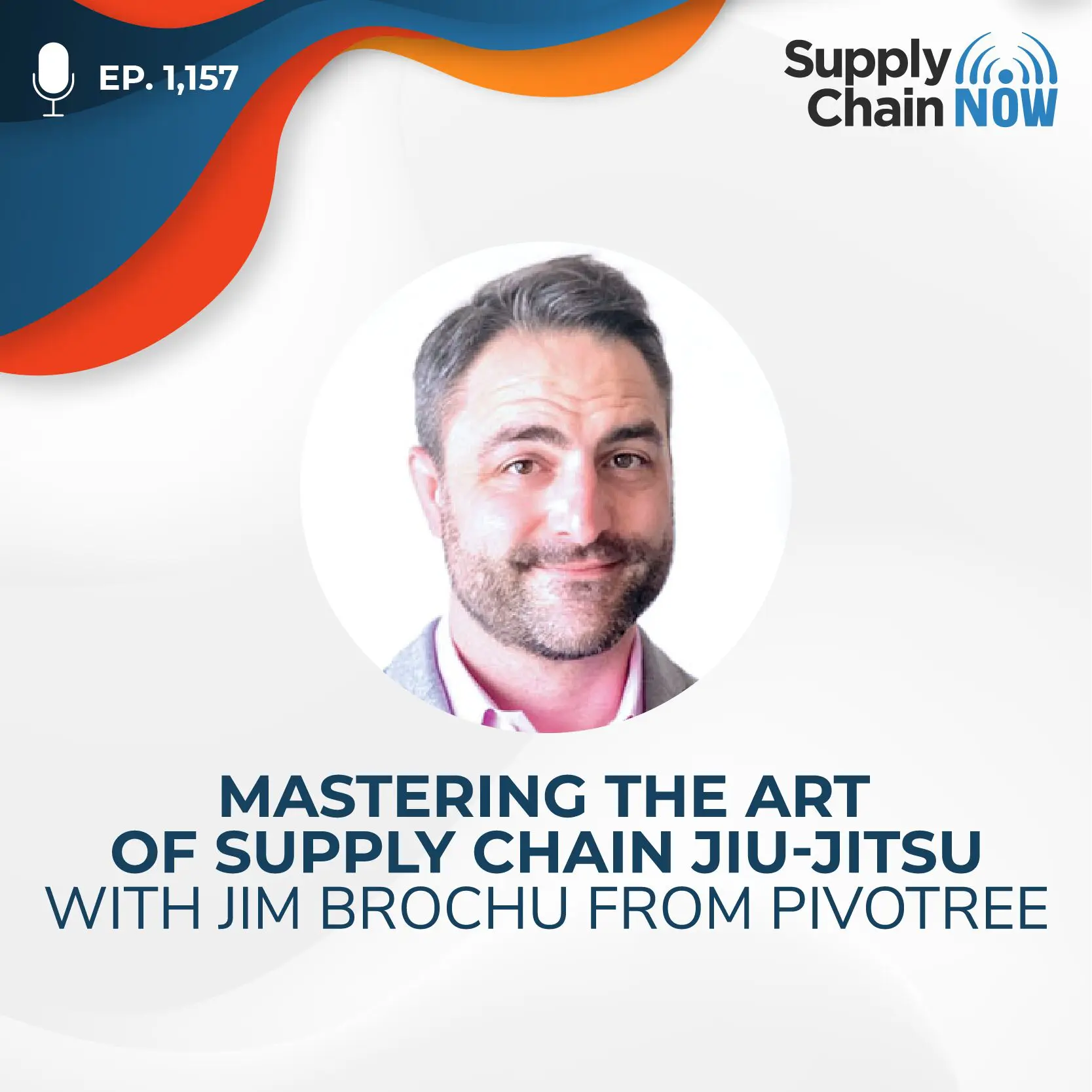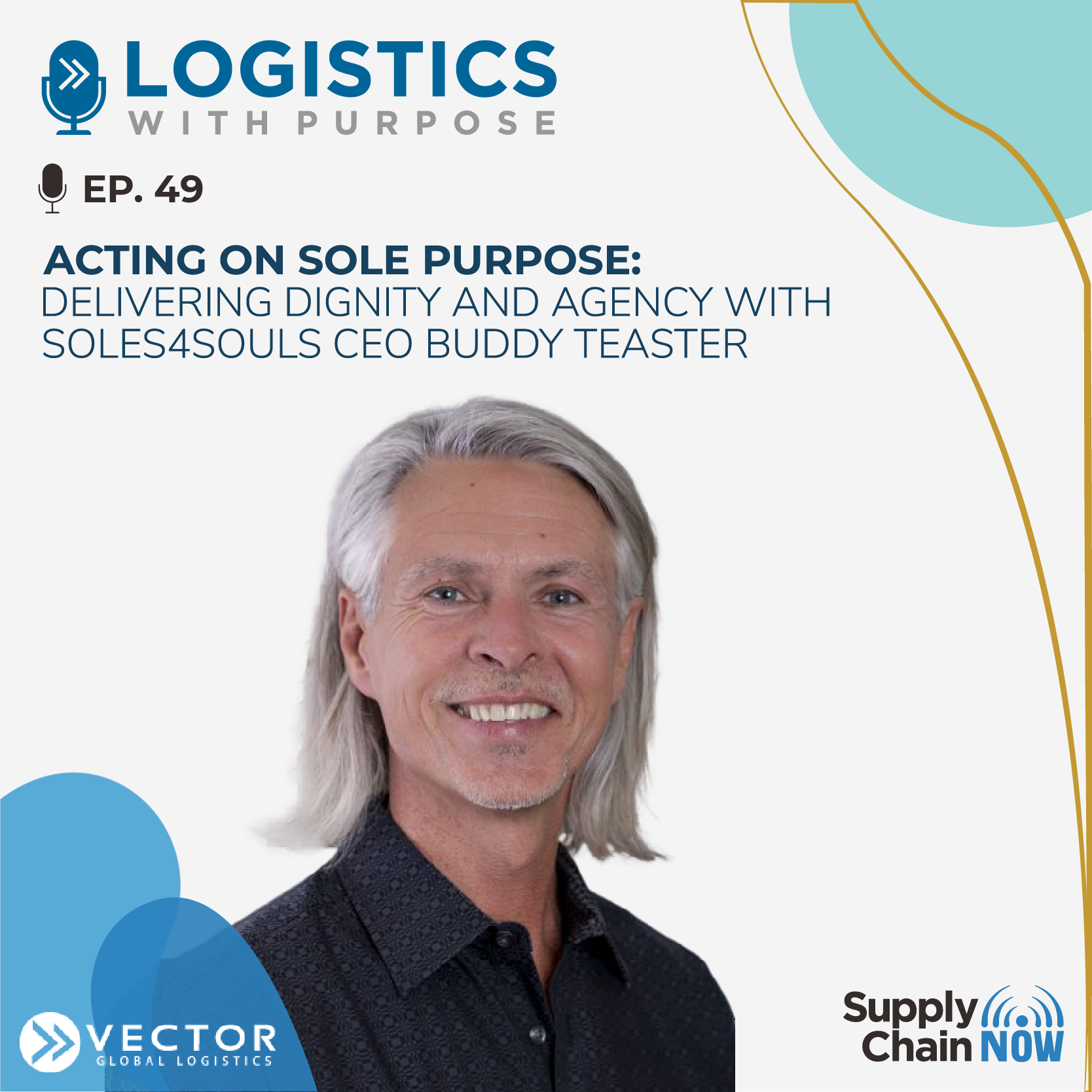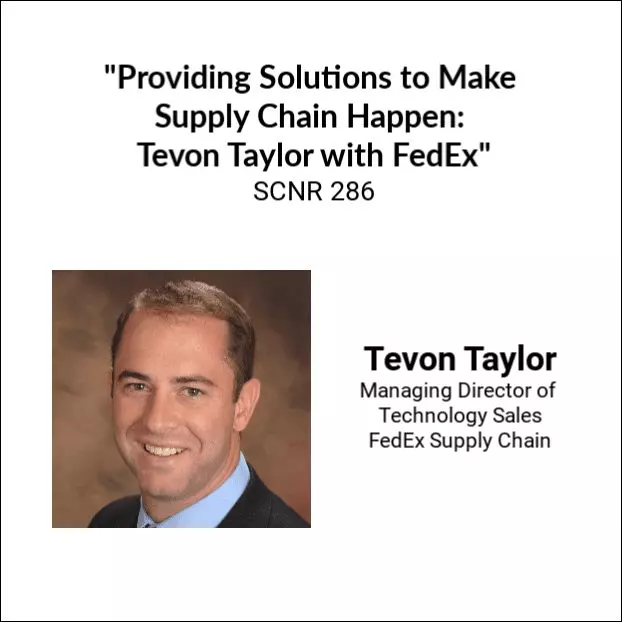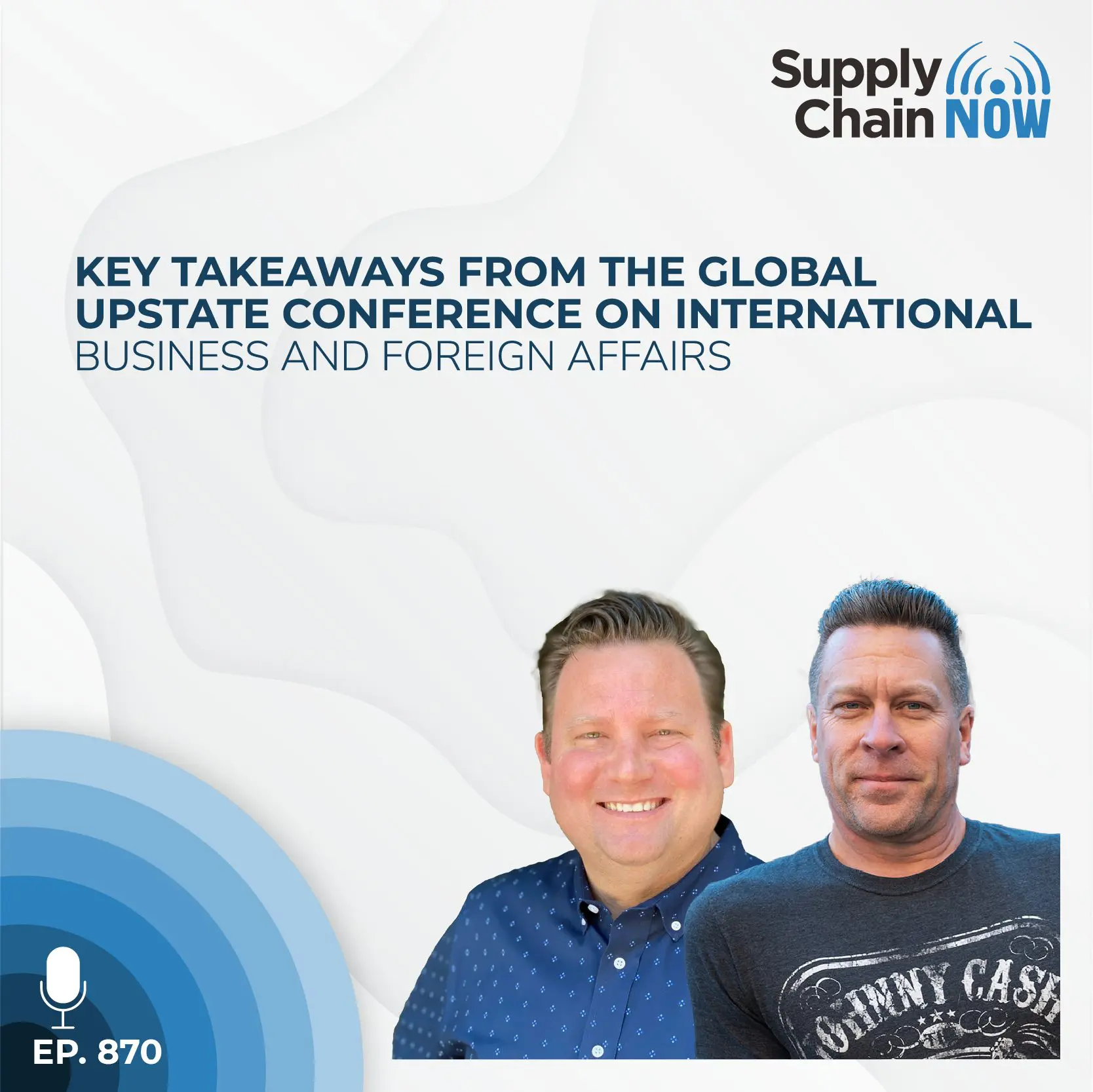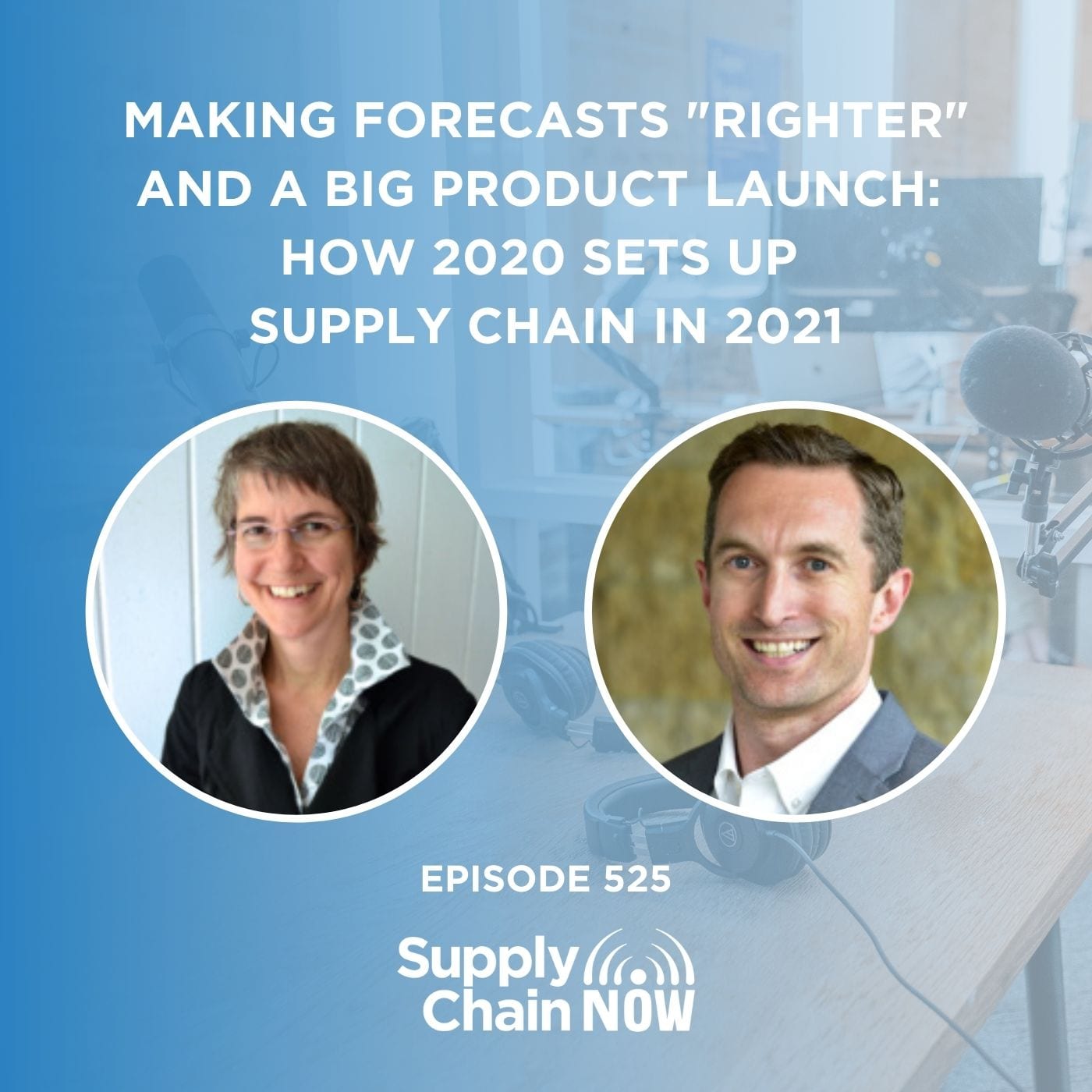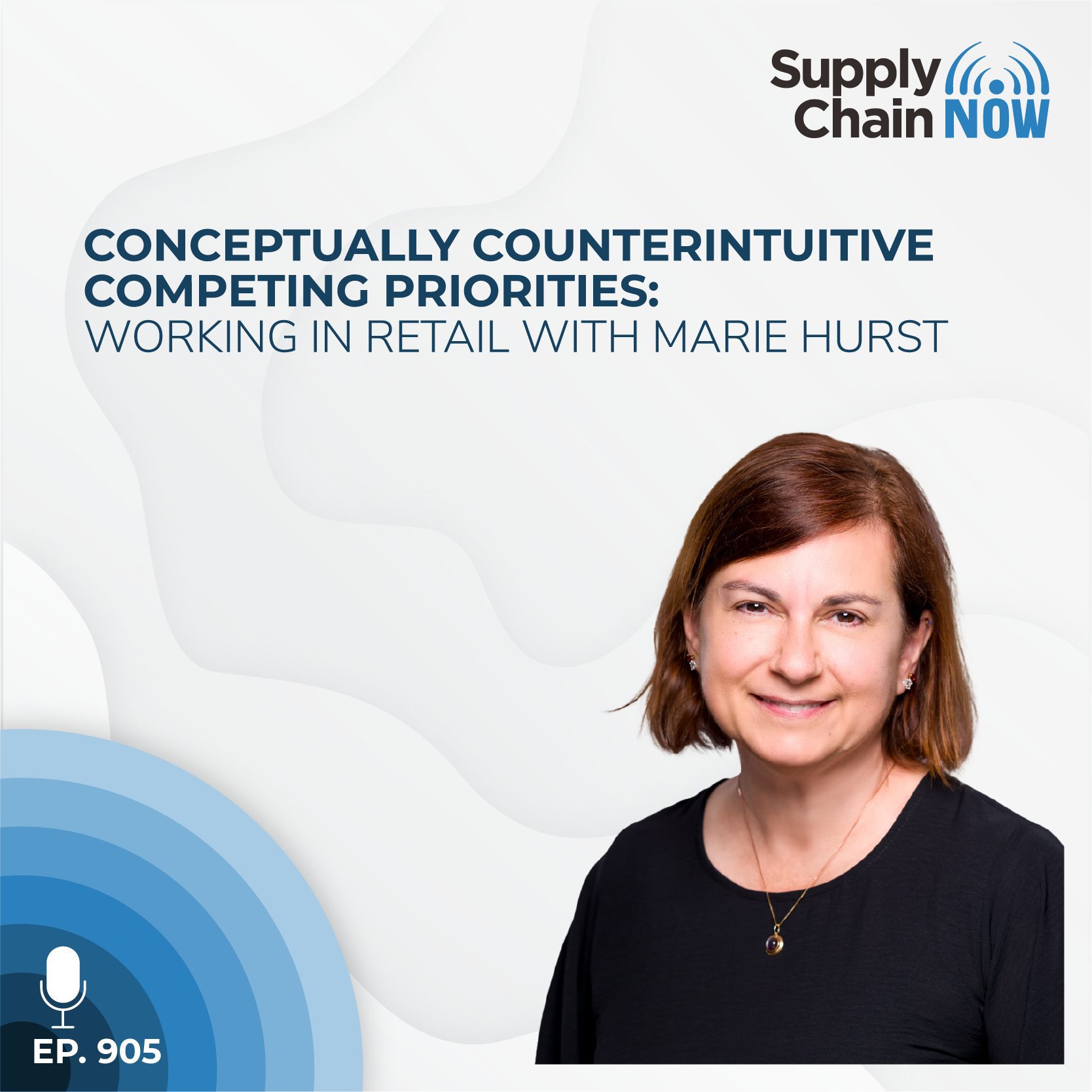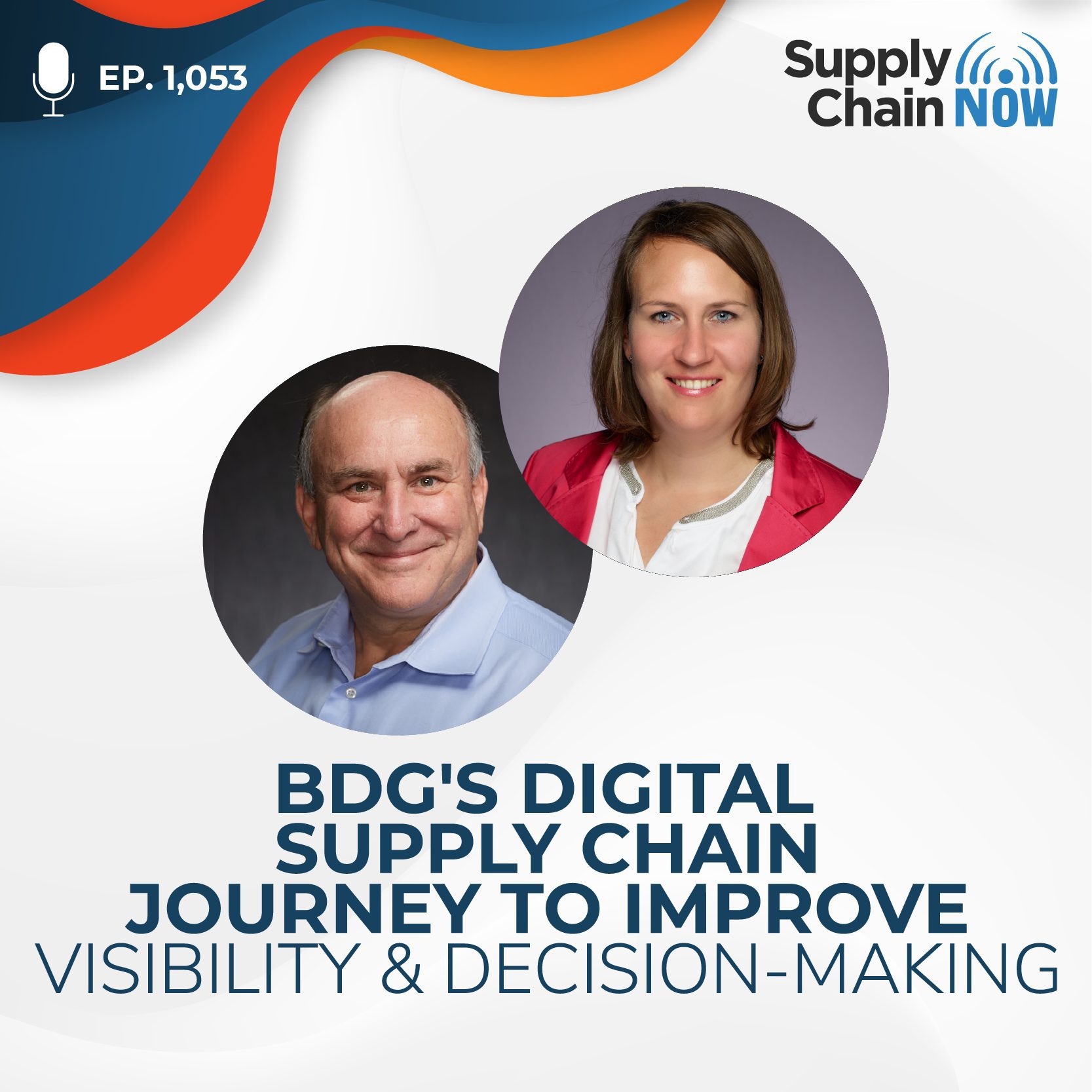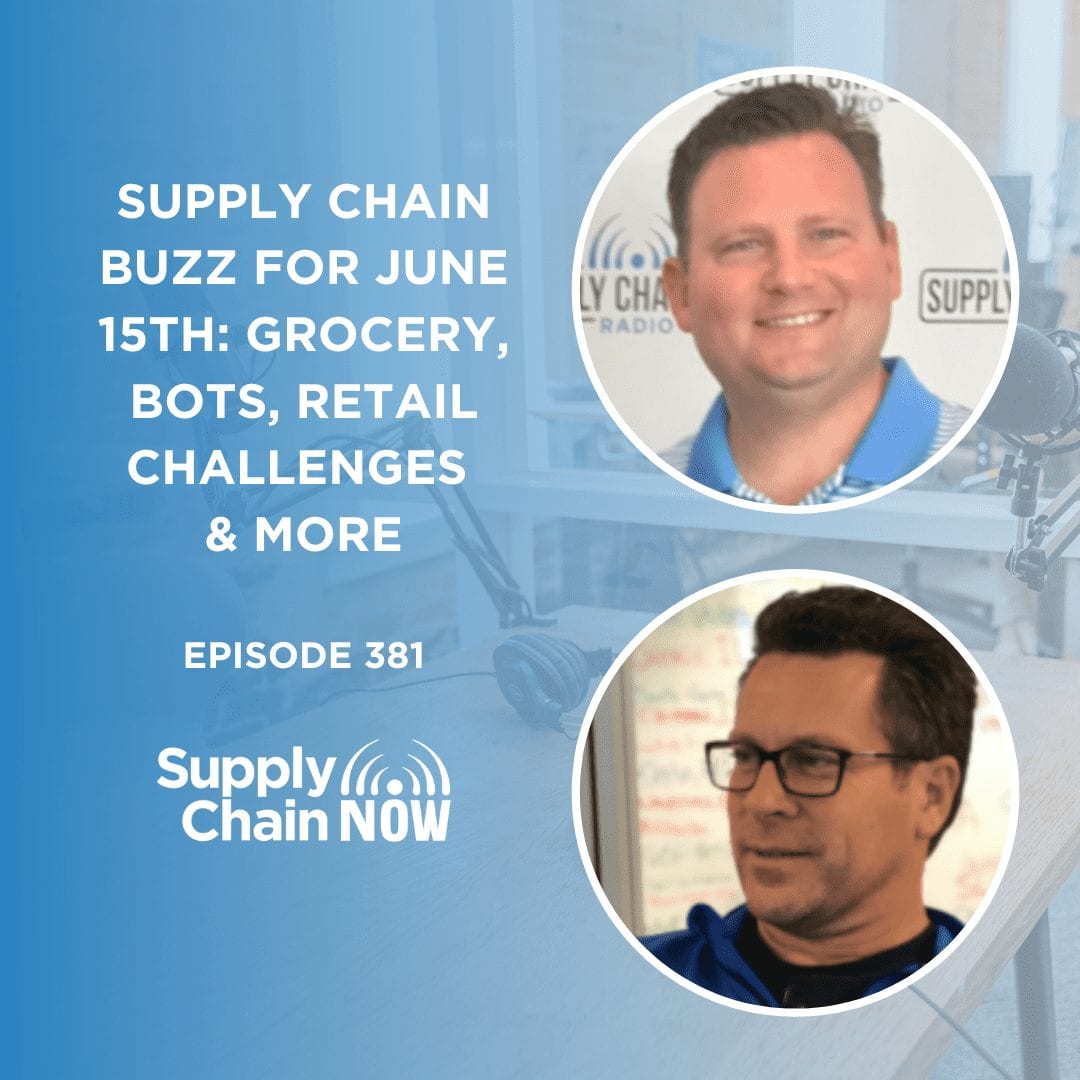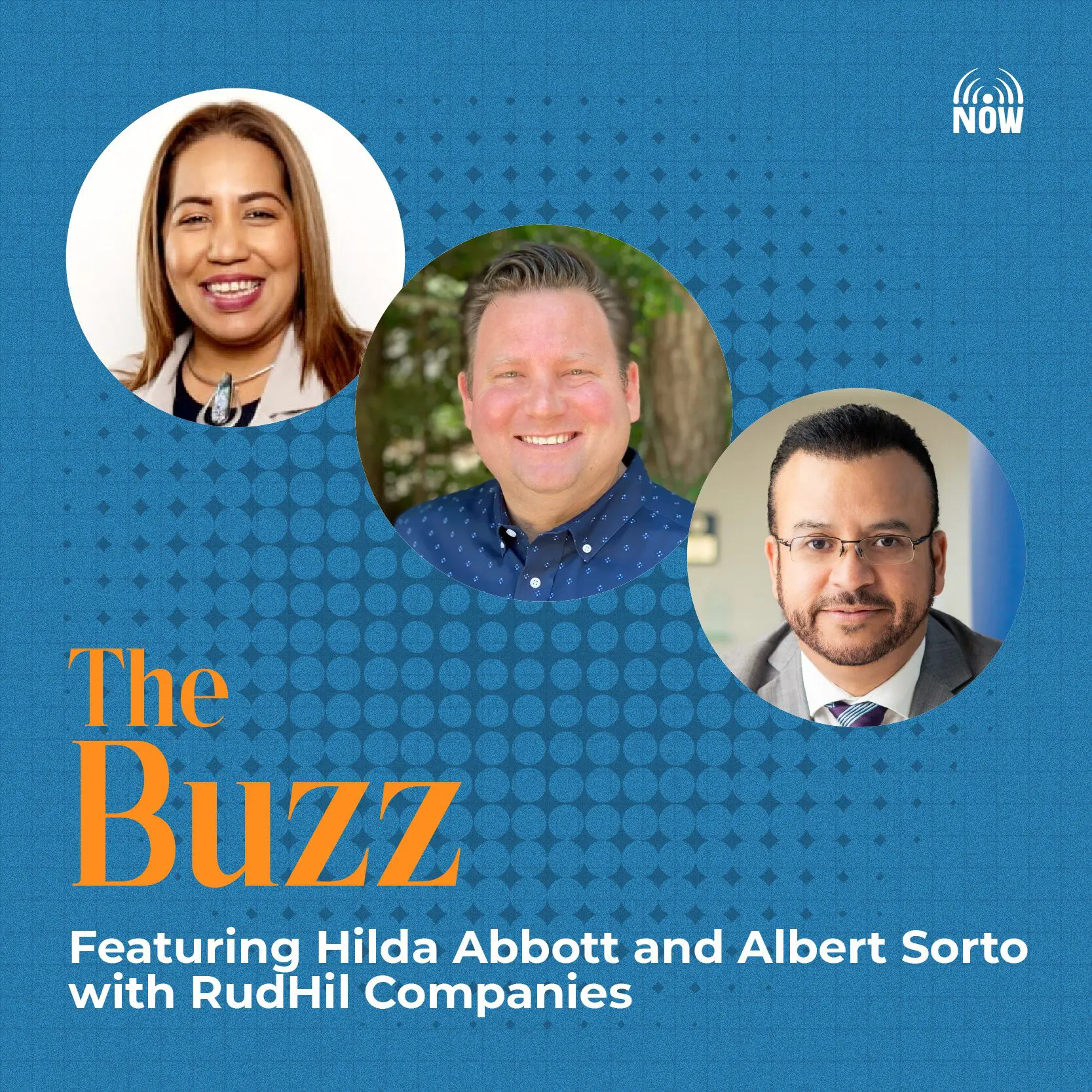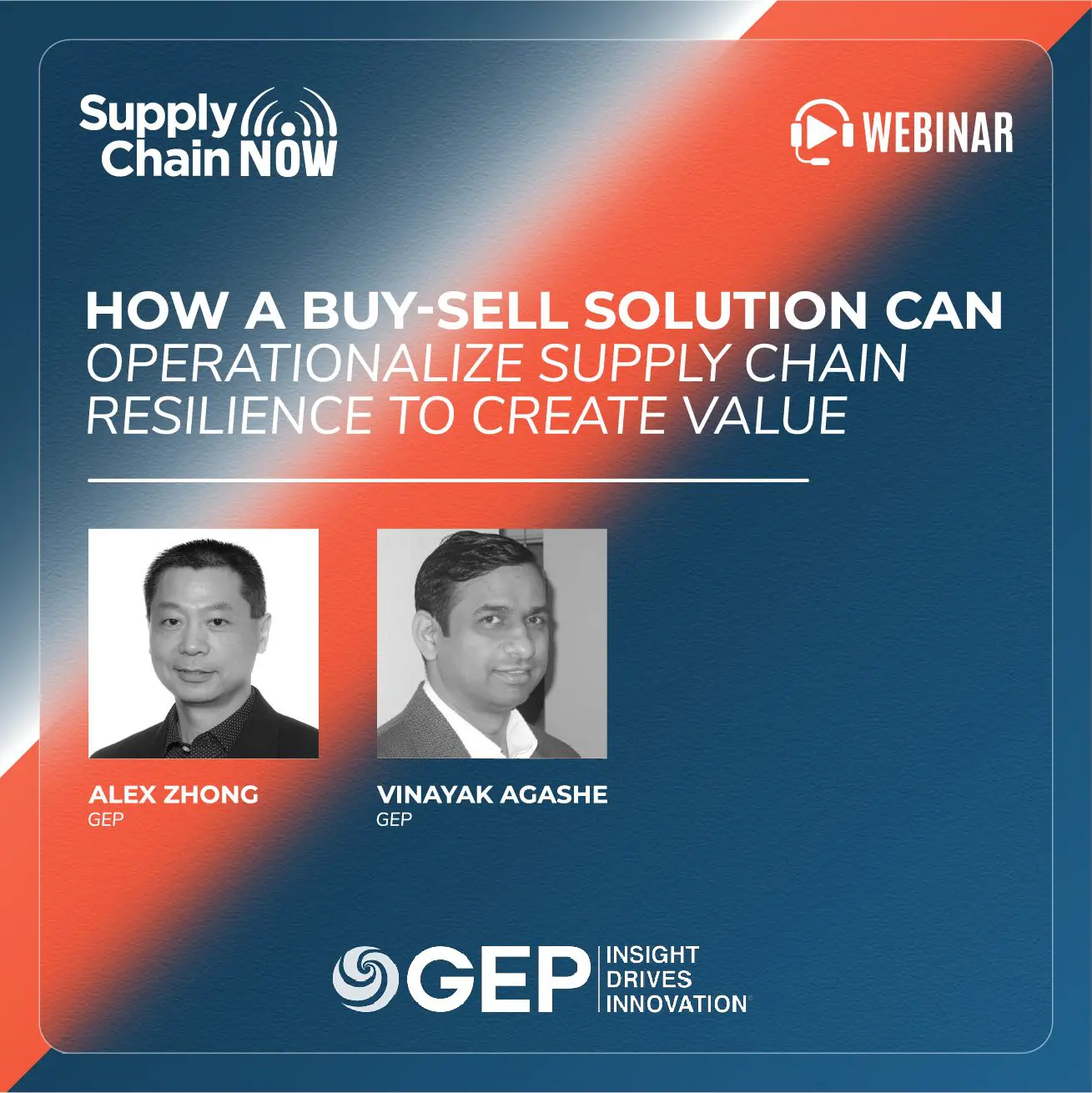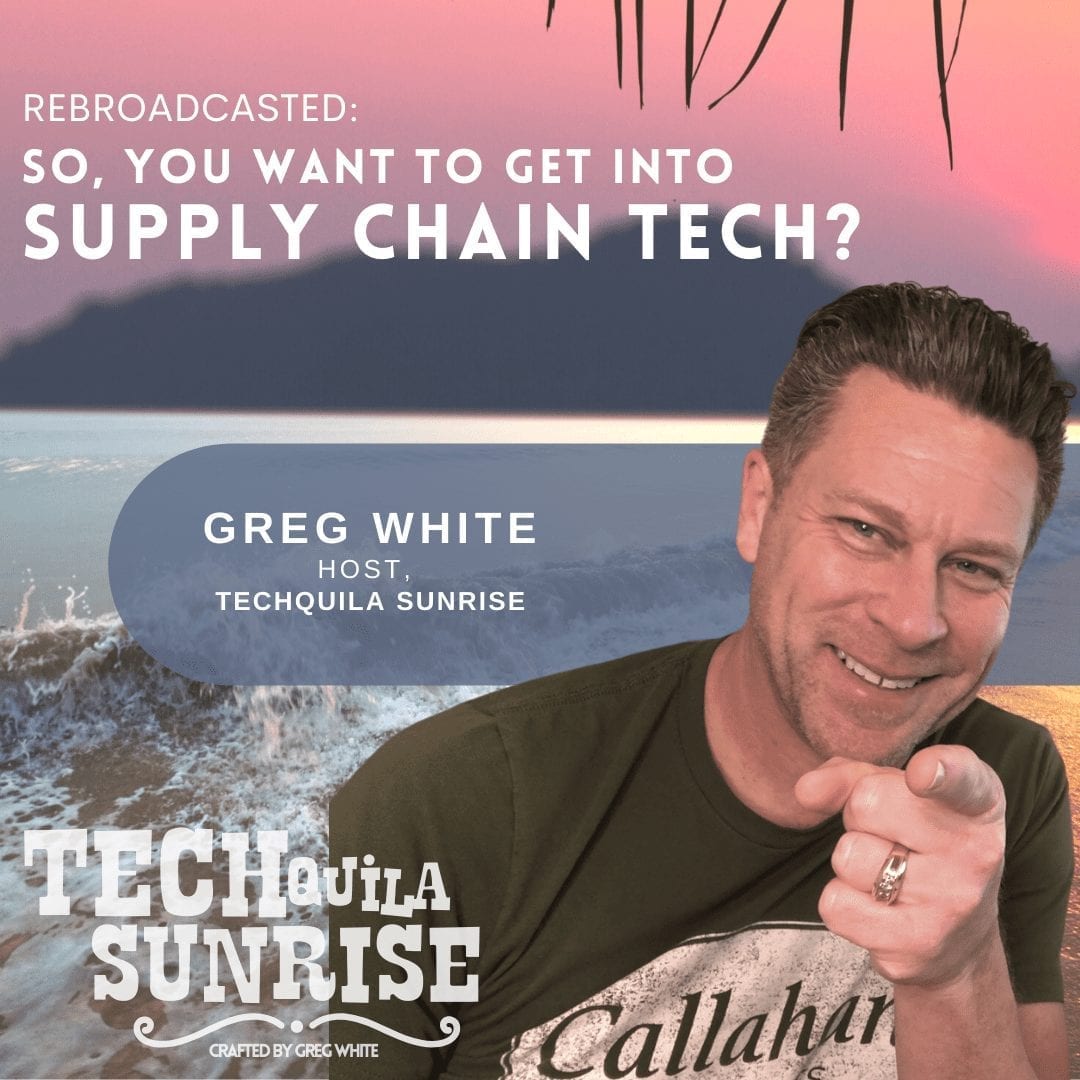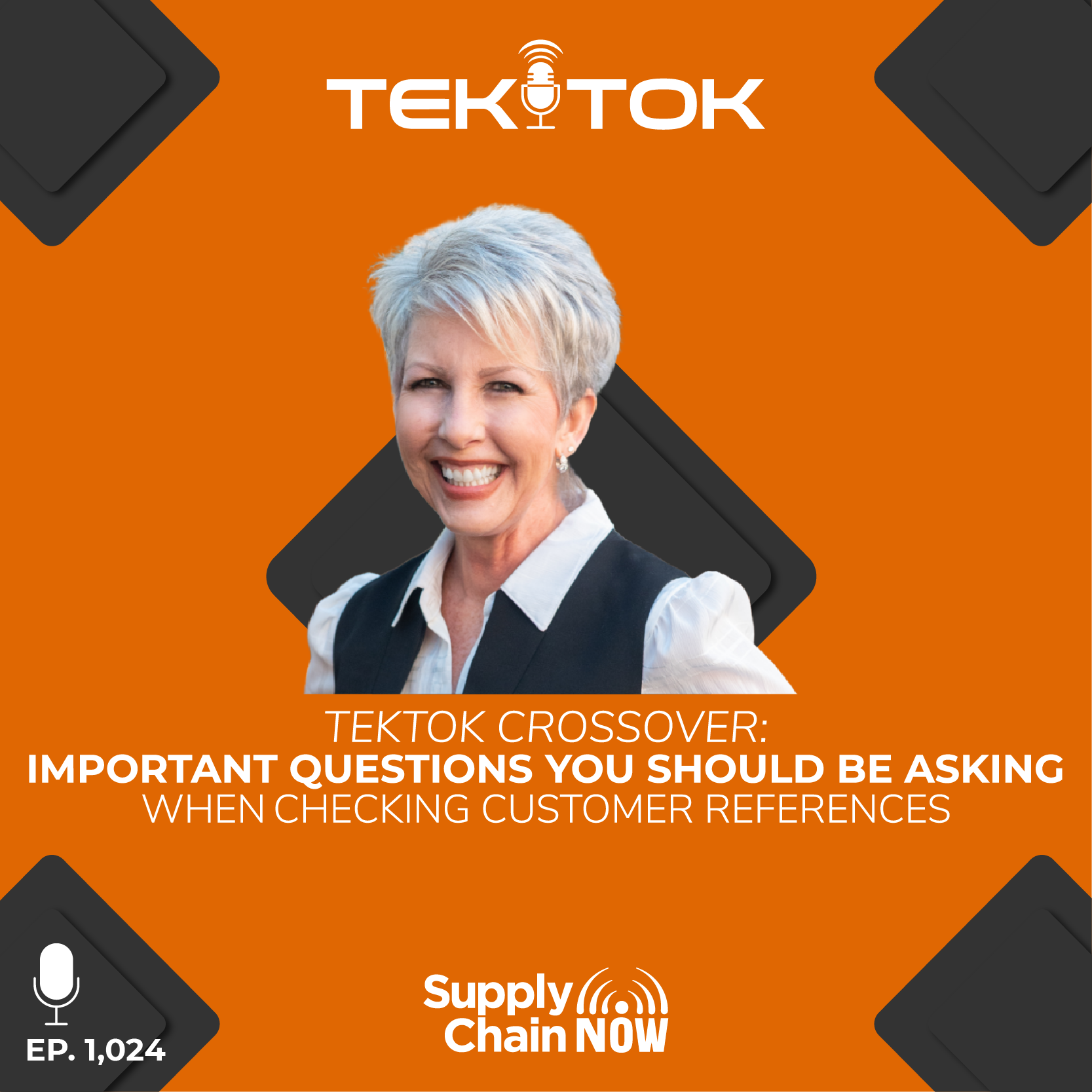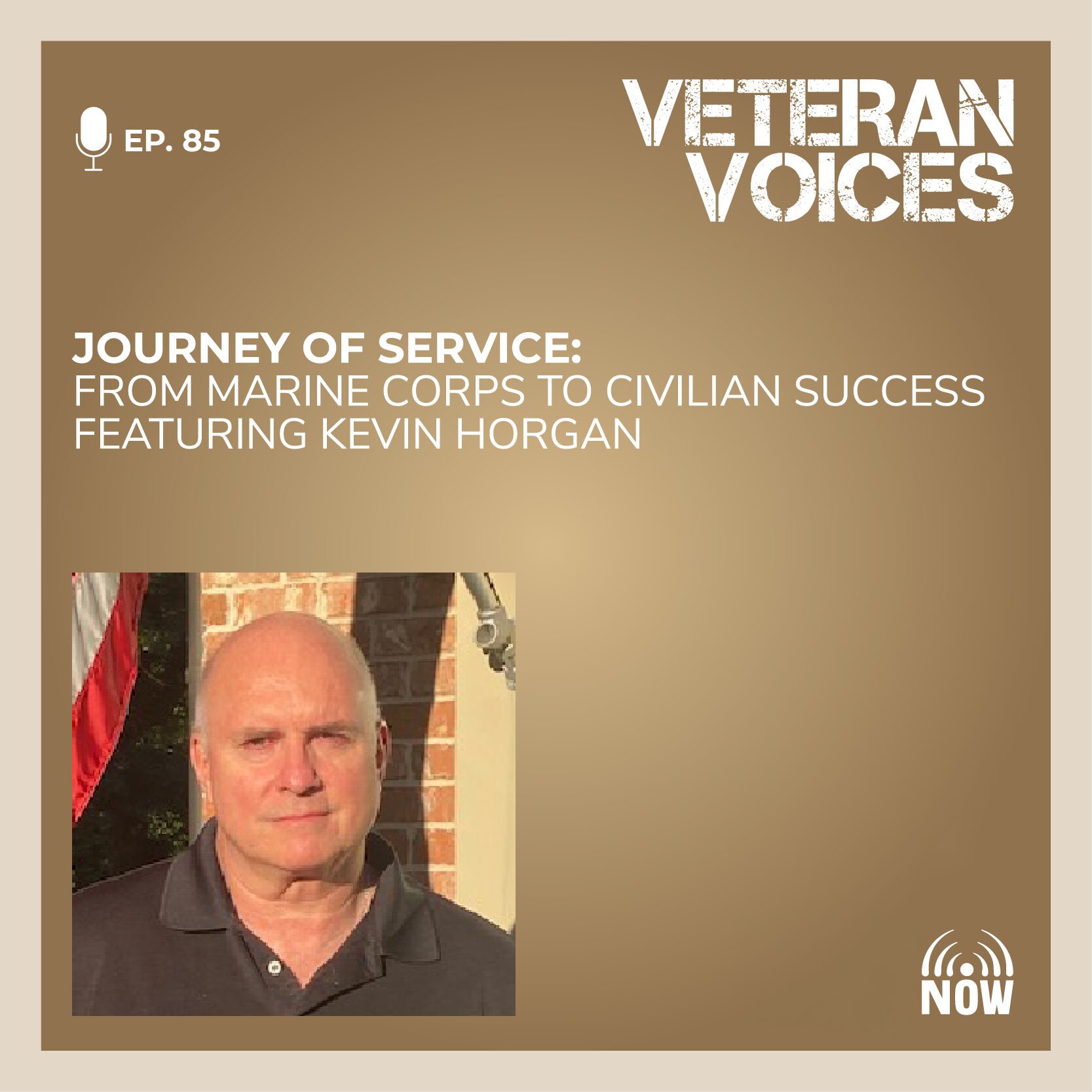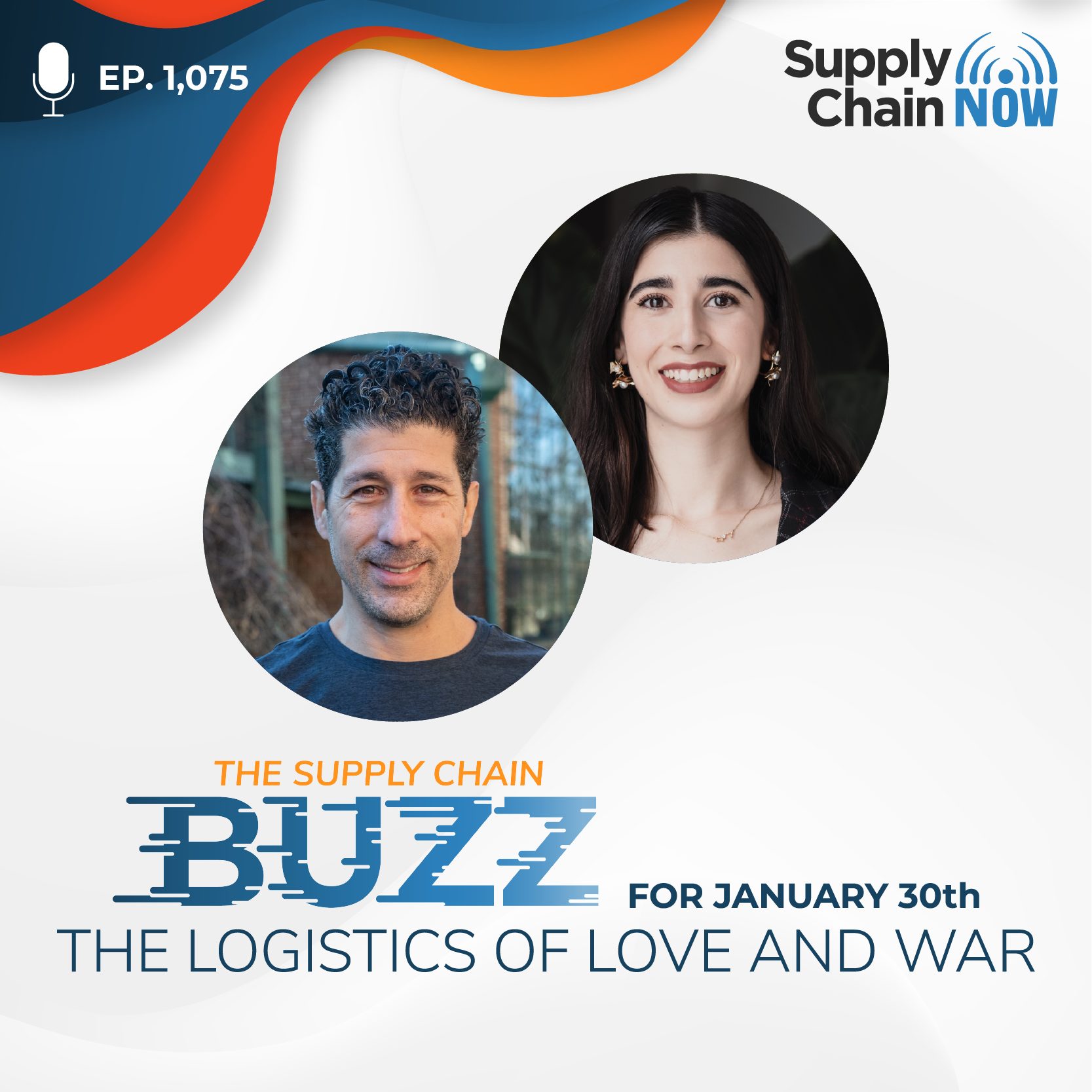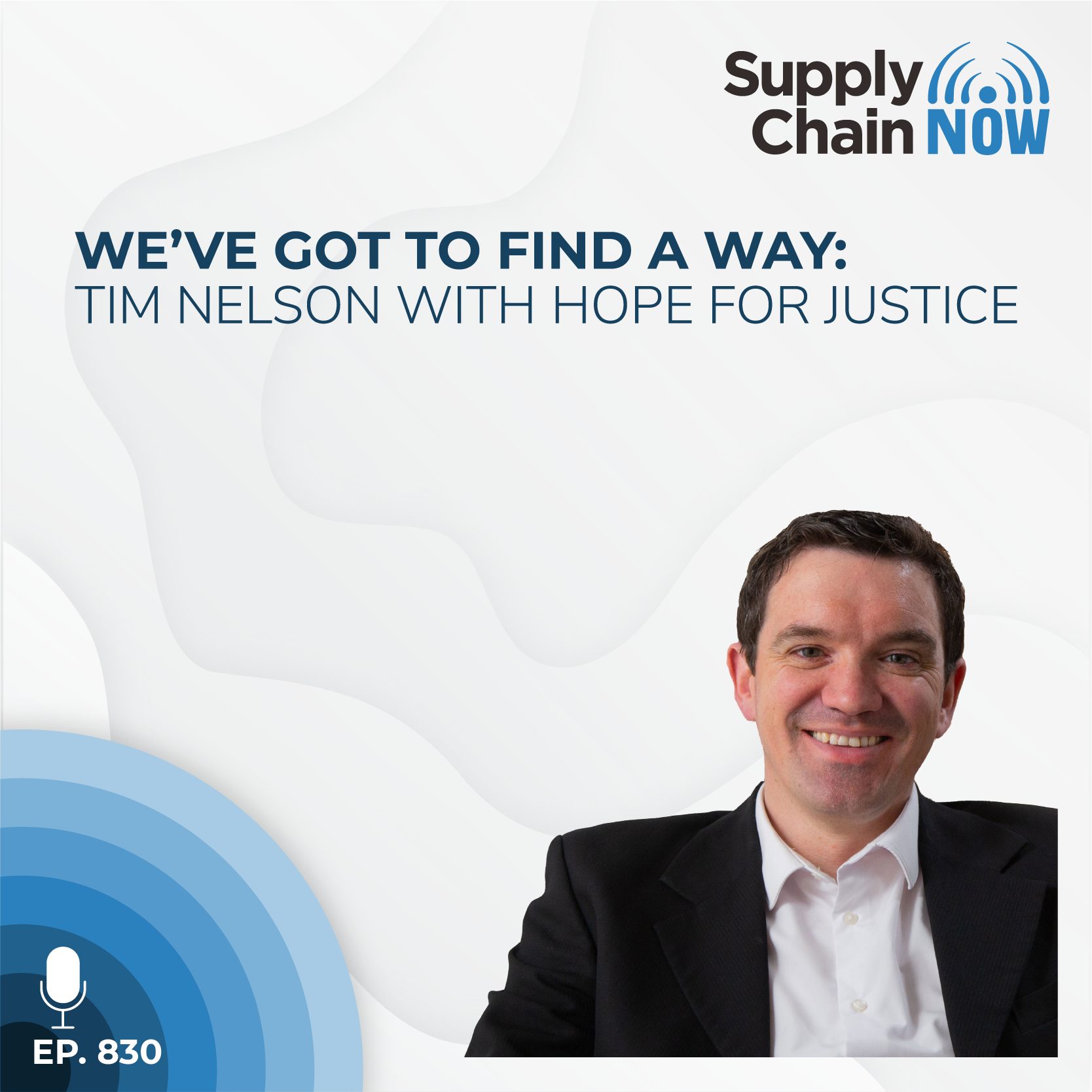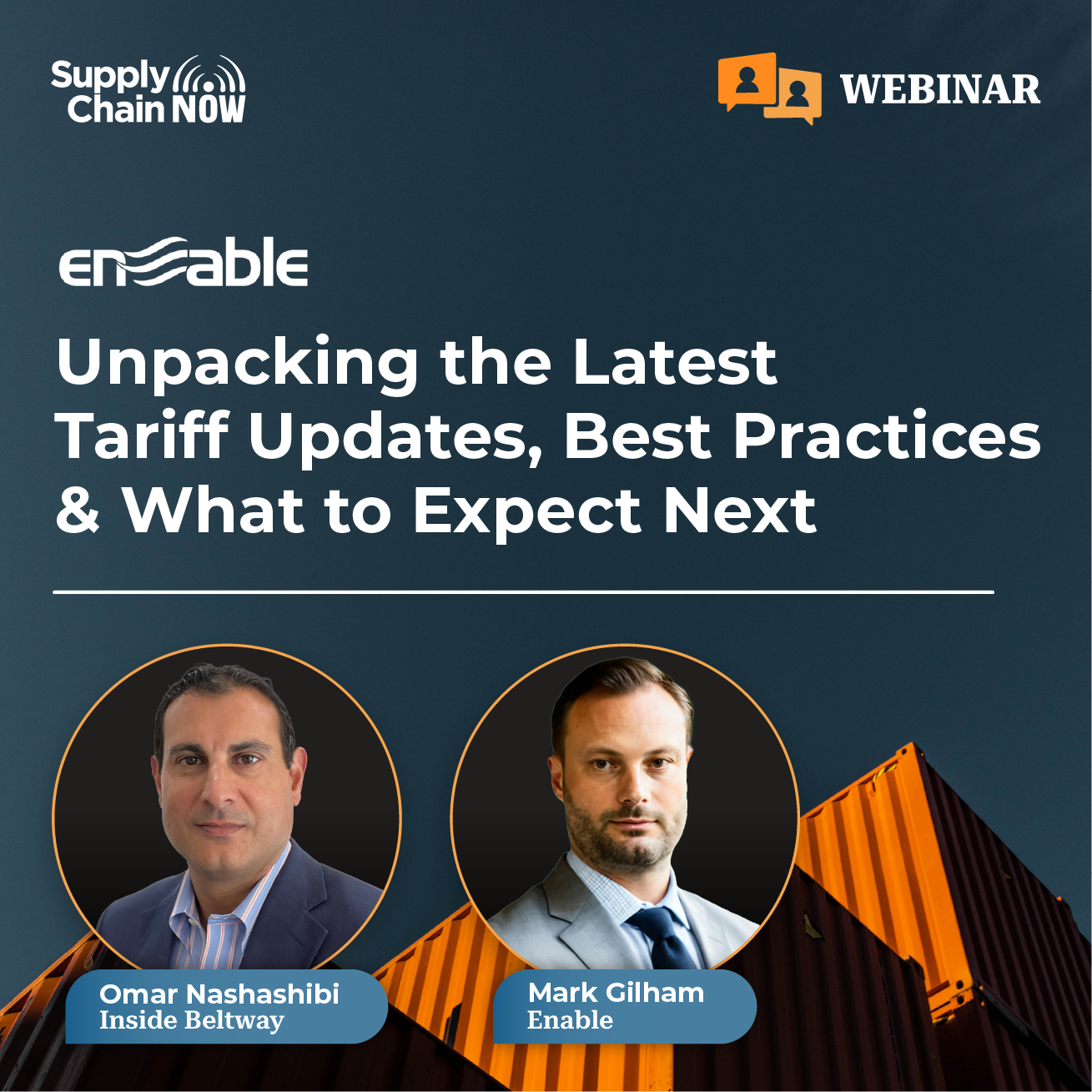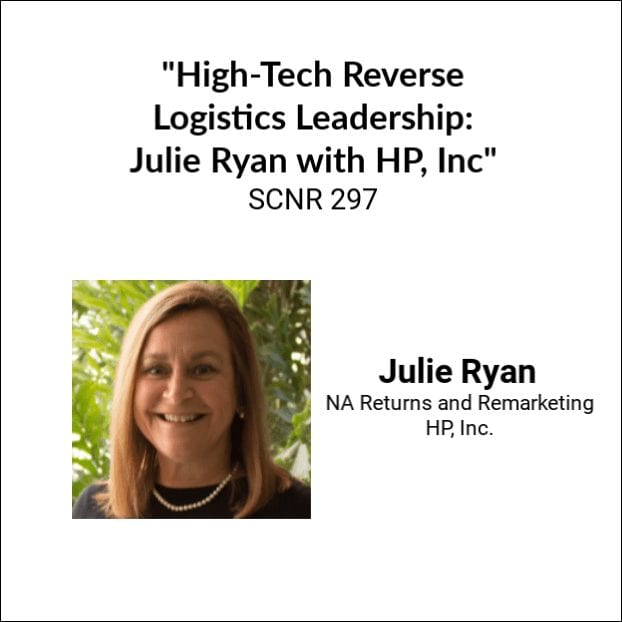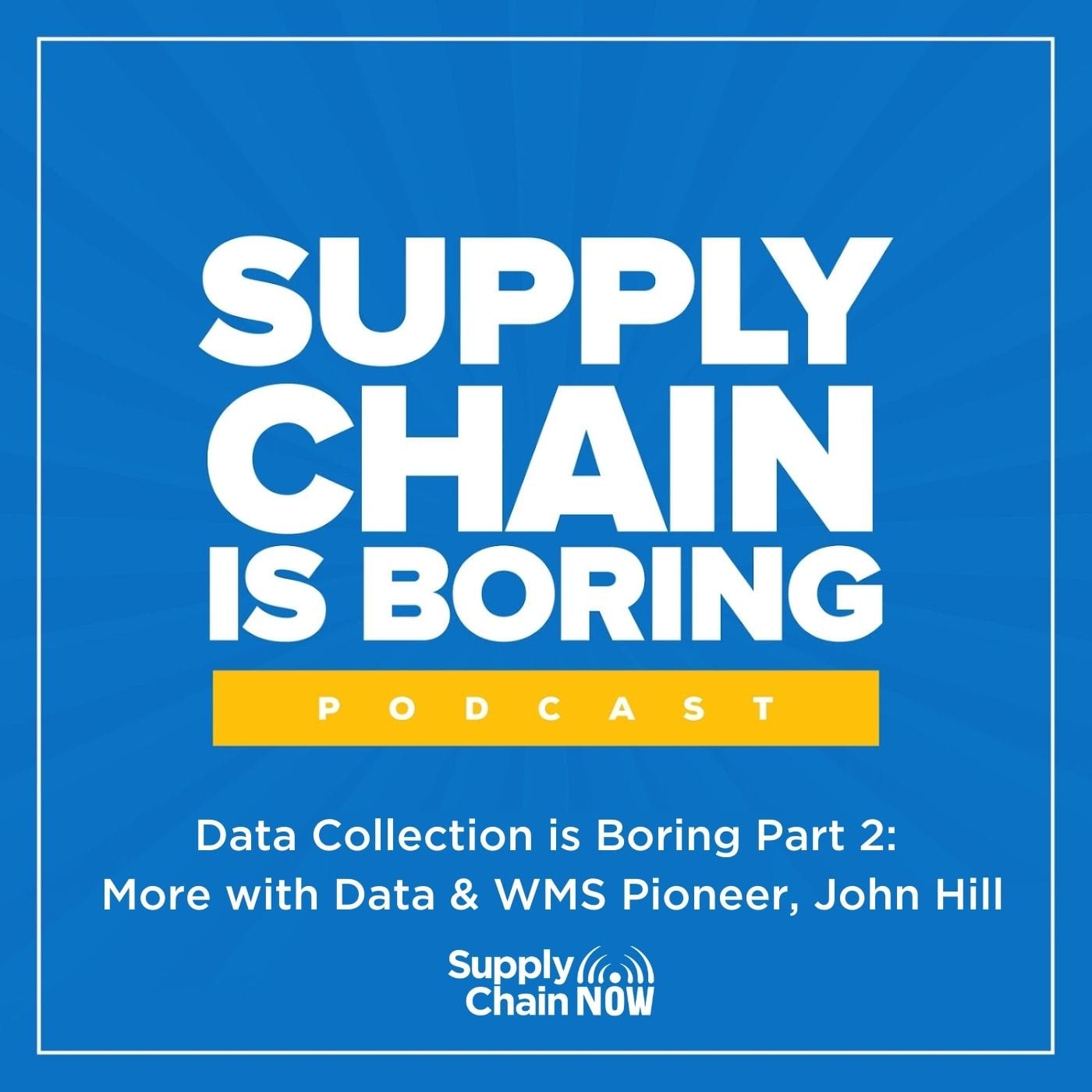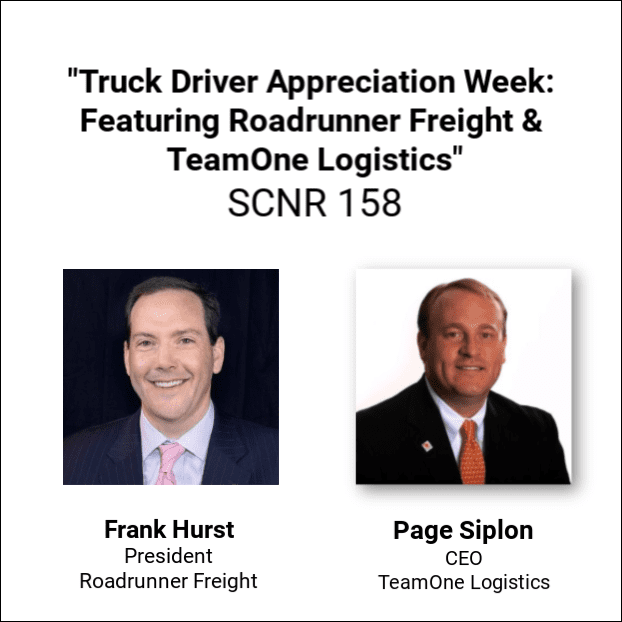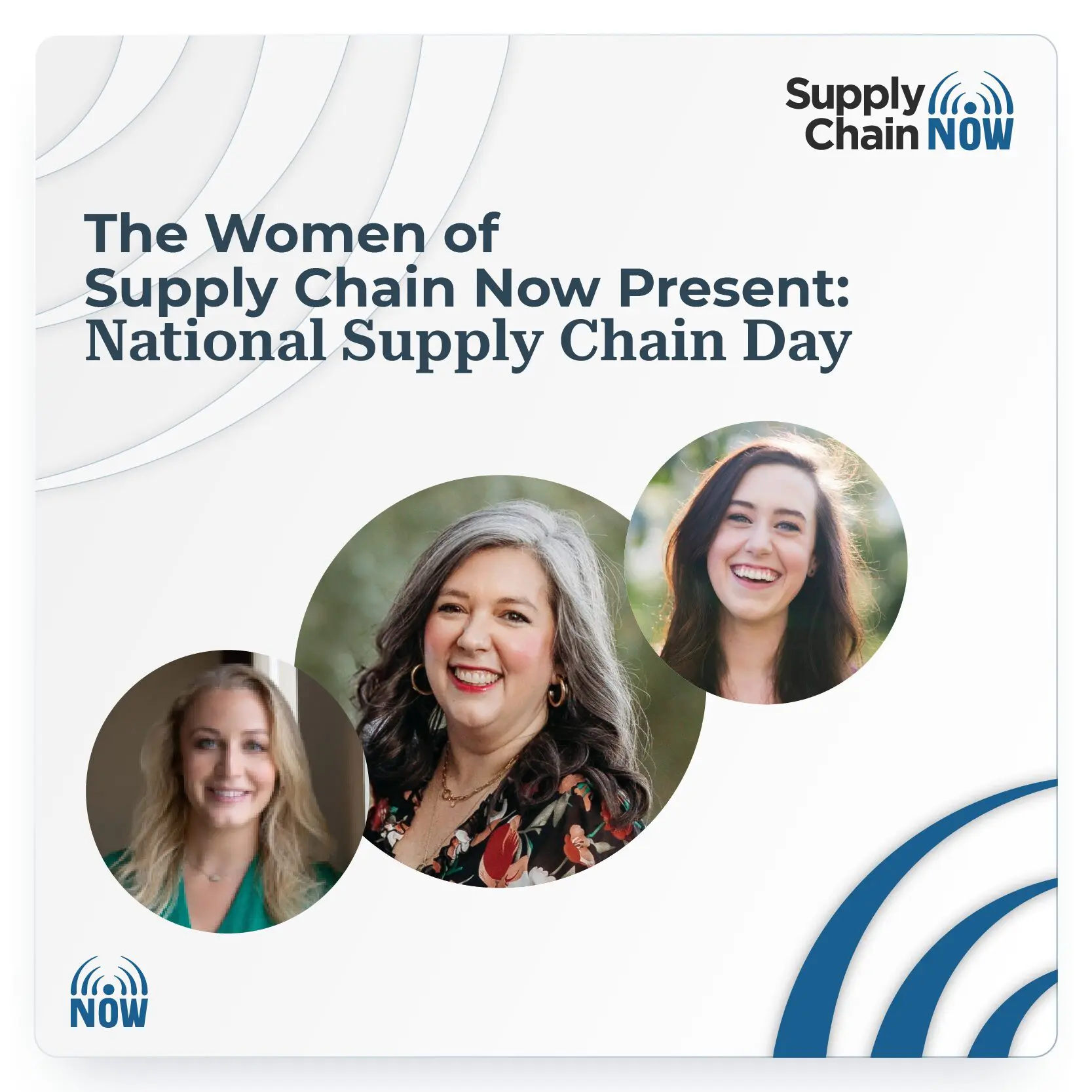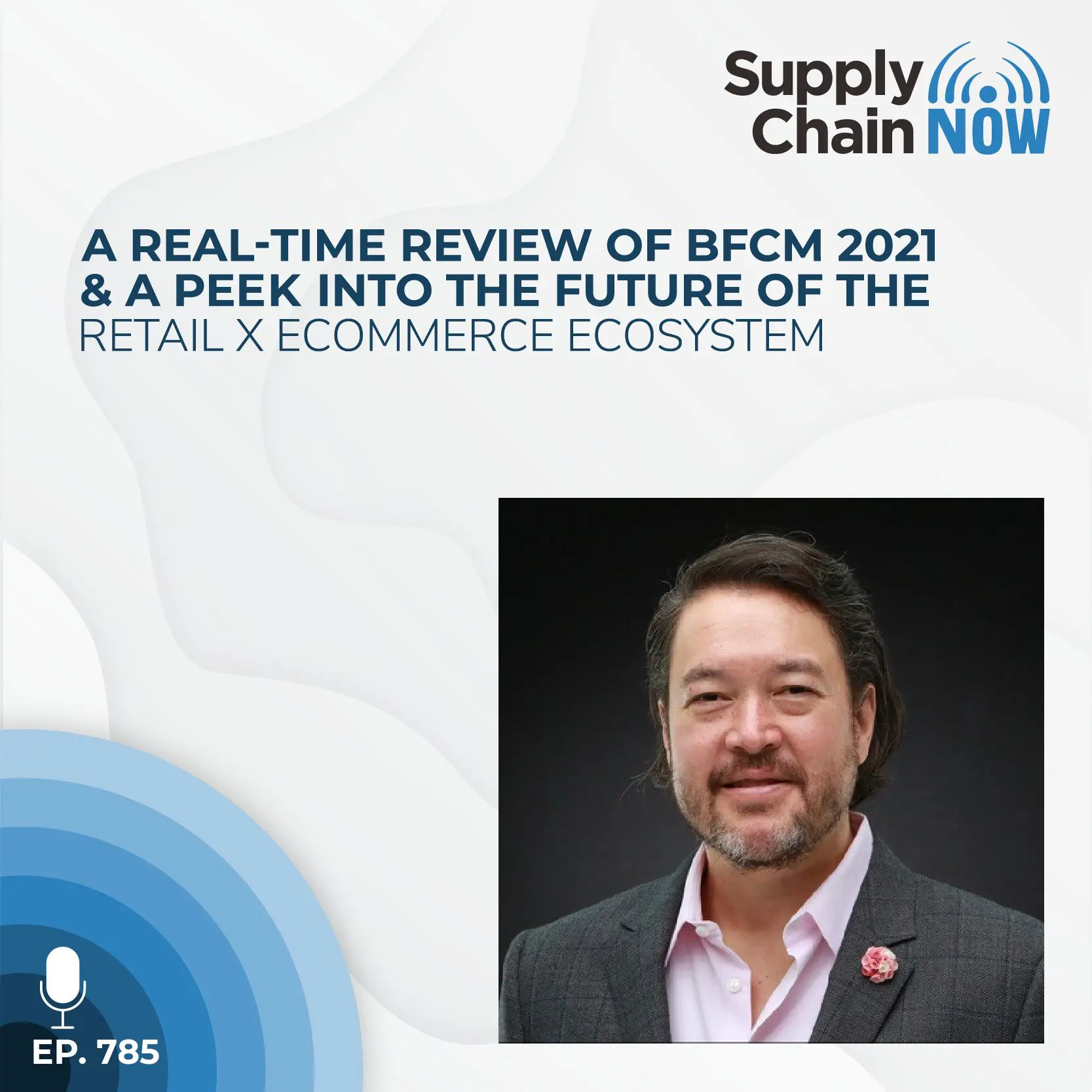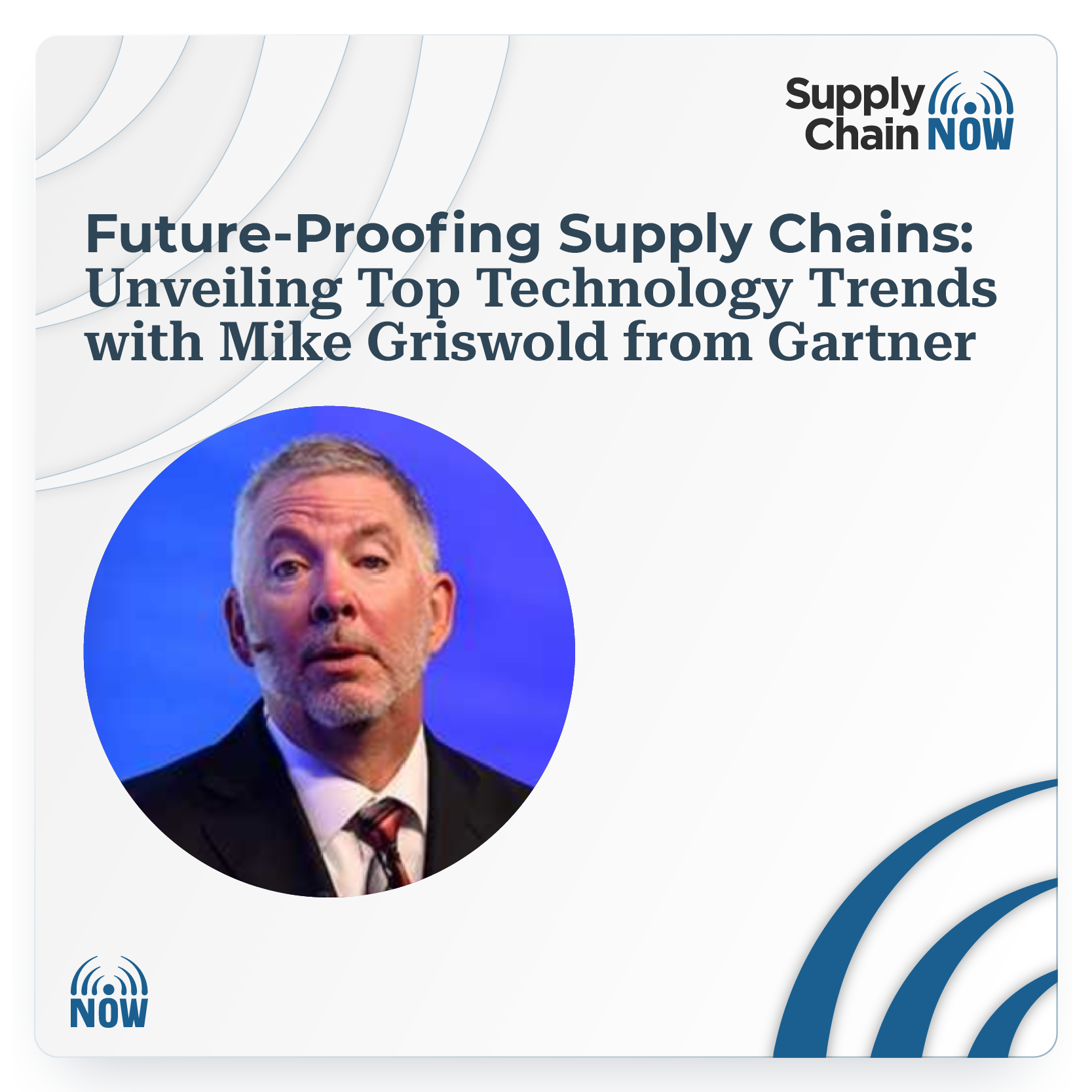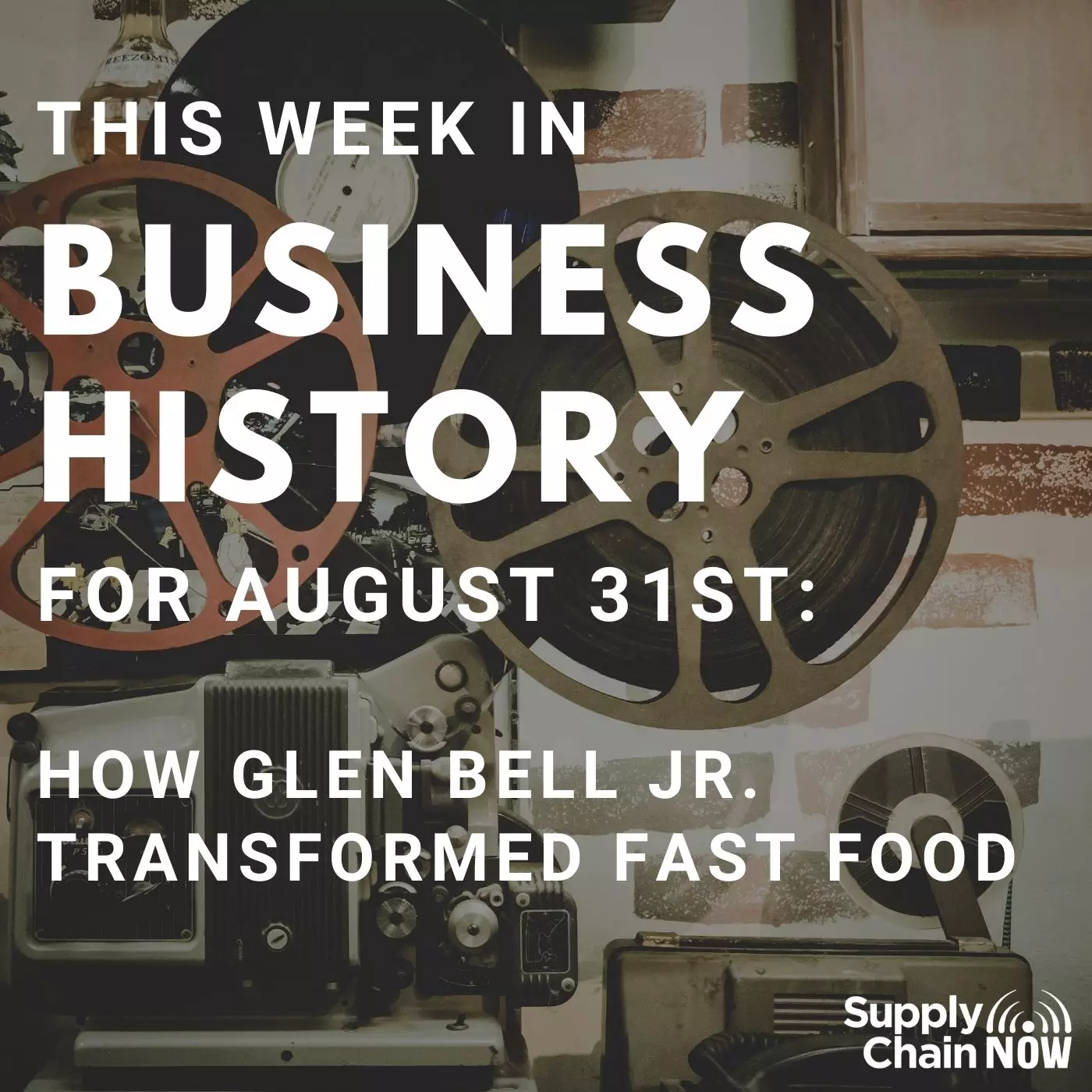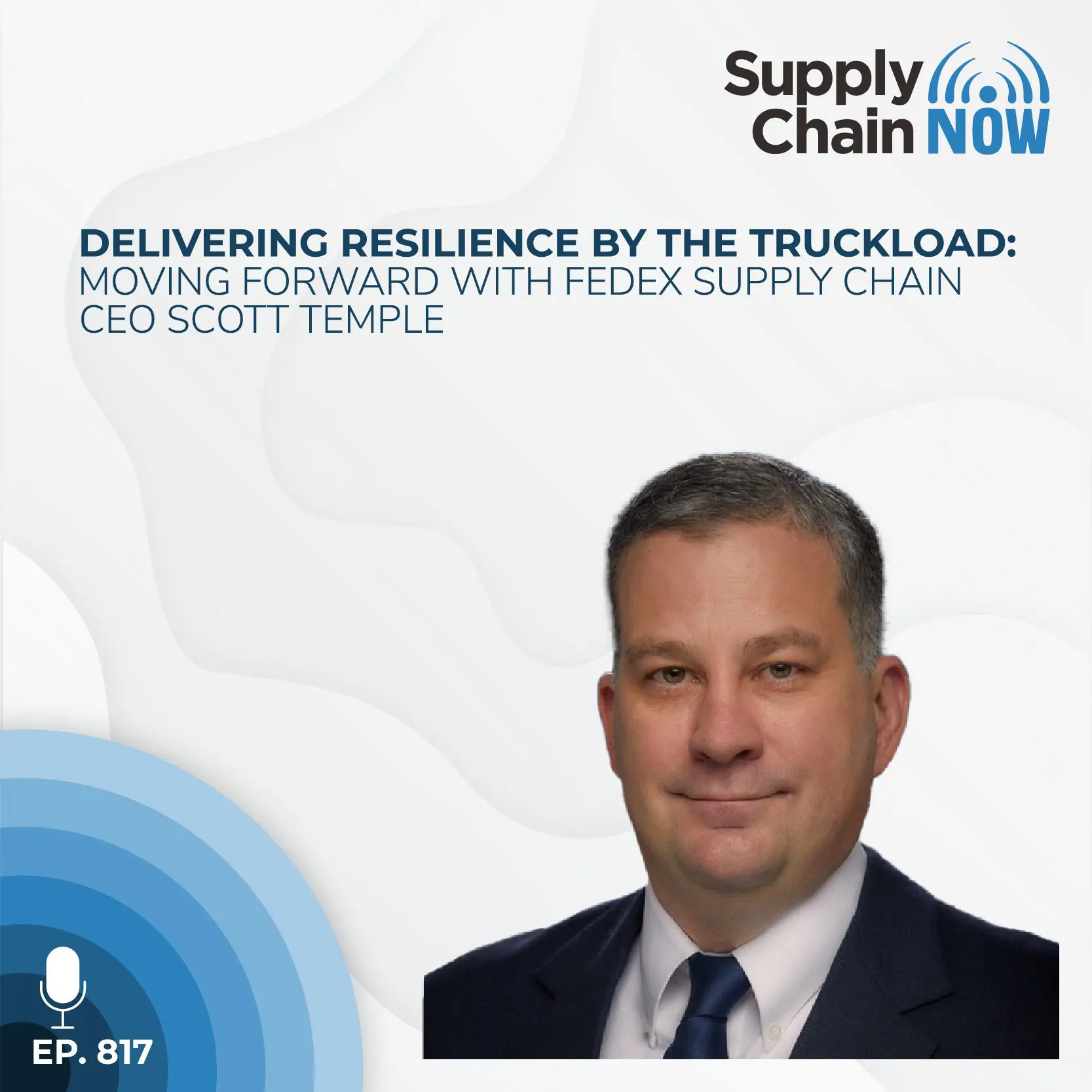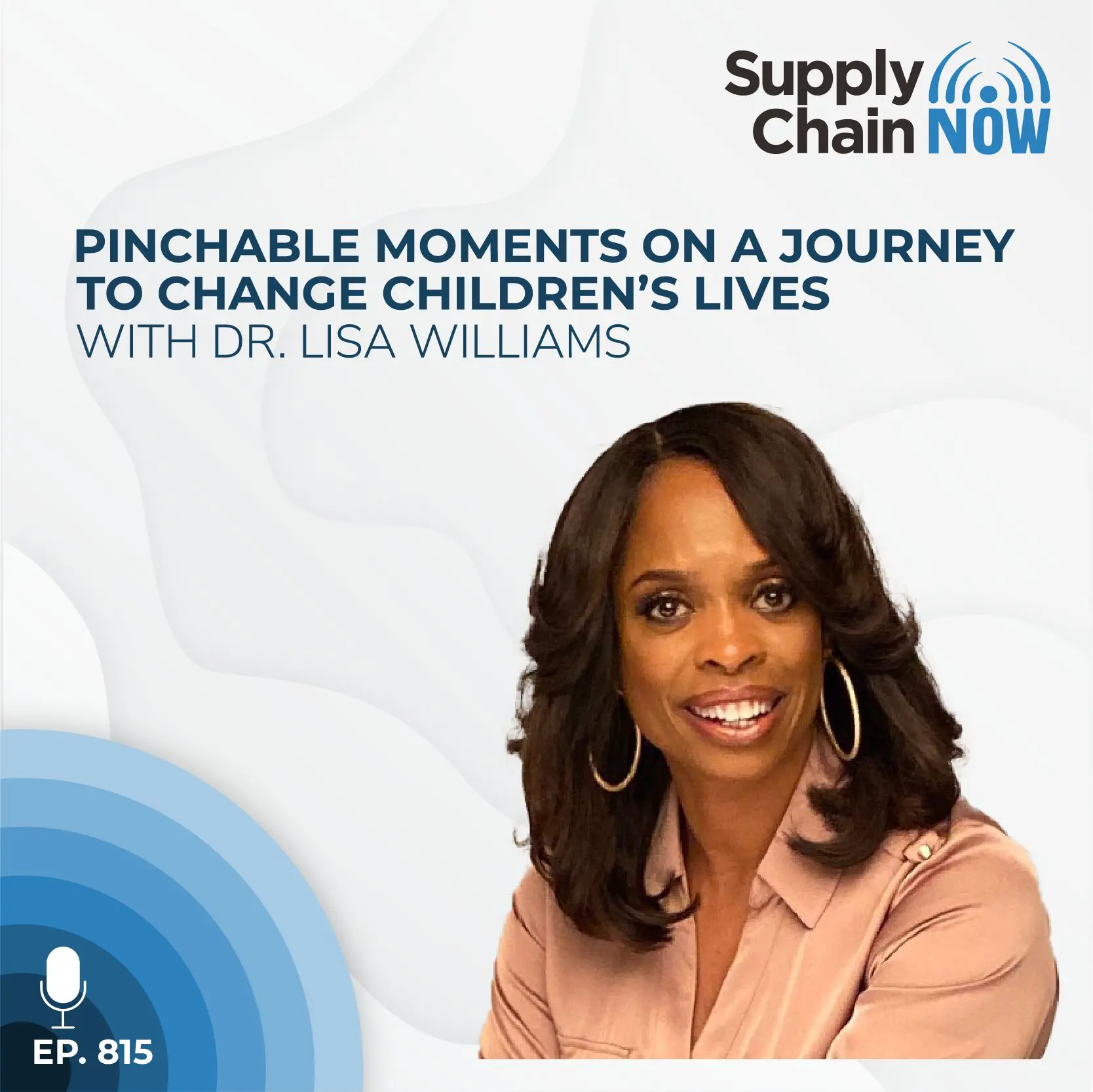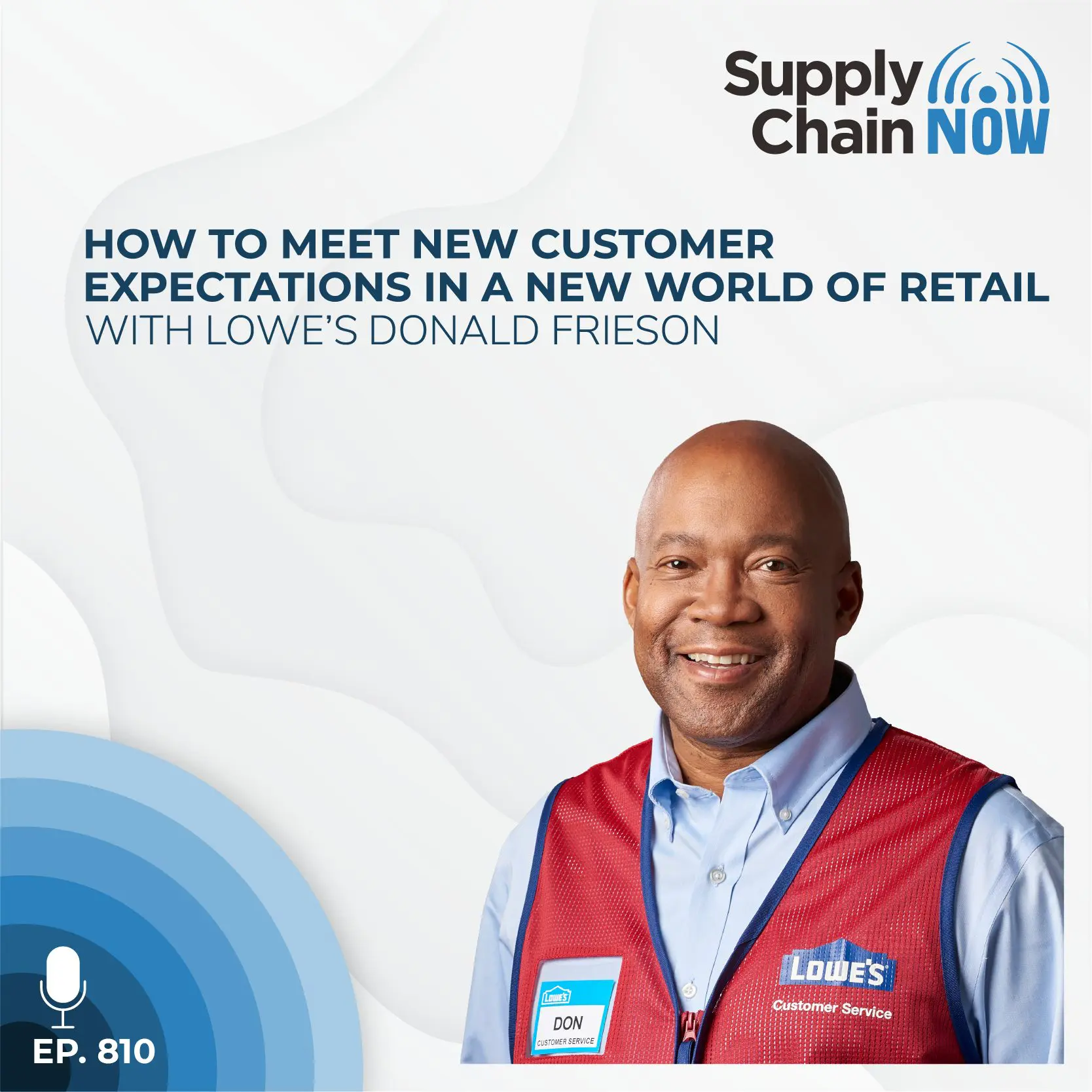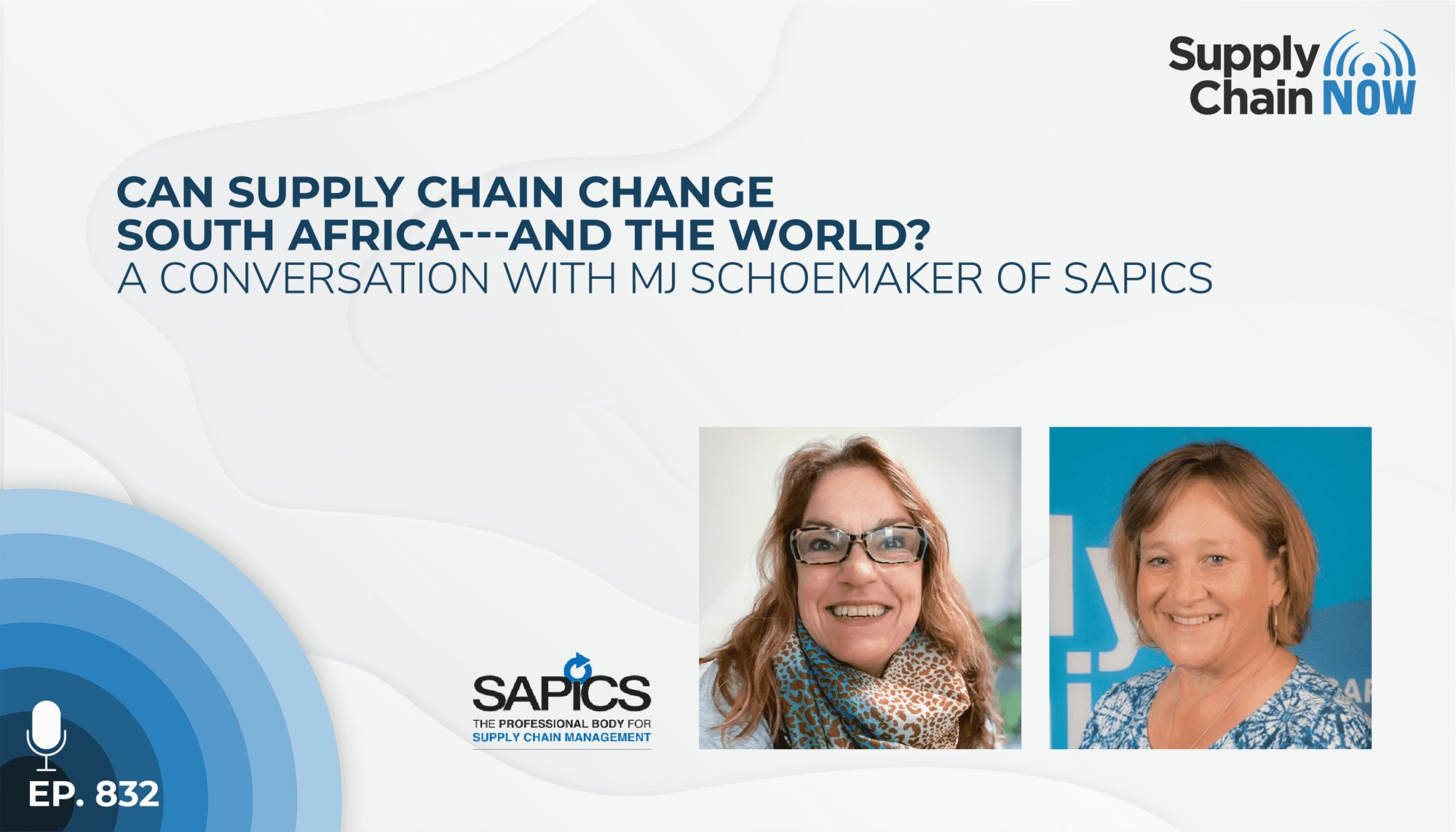
I've got the helper syndrome. I just feel like we can build a better South Africa, and I can say maybe Africa, maybe even world, you know?
-MJ Schoemaker
Episode Summary
Get bored easily? Want to work with the latest technologies? Then supply chain could be the profession for you. It certainly has been for MJ Schoemaker, President of the Board of Directors of SAPICS. Join Scott and special guest cohost Jenny Froome as they chat with MJ about her career trajectory, what makes the South African supply chain stand out, the silver lining of COVID disruptions, the importance of long-term planning, how to best reach the next generation of supply chain leaders and more.
Episode Transcript
Intro/Outro (00:03):
Welcome to supply chain. Now the voice of global supply chain supply chain now focuses on the best in the business for our worldwide audience, the people, the technologies, the best practices, and today’s critical issues. The challenges and introduced stay tuned to hear from those making global business happen right here on supply chain now.
Scott Luton (00:32):
Hey, good morning, everybody. Scott Luton and Jenny Froome here with you on supply chain now, welcome to today’s show Jenny, how you doing really well? How are you doing? We’re doing wonderful. Great, great to have you back with us. We’ve really enjoyed this supply chain leadership across Africa series. You bring the best guests and you’re continuing that here today. Yeah, we’ve got lots
Jenny Froome (00:53):
Of great people in this profession on this continent. So thank you for letting me keep on
Scott Luton (00:58):
Bringing them to you agreed the best people, innovate, ideas, talent, uh, you name it. So Hey, but Jenny fr for the three of y’all that may not know, uh, listening, Jenny fr serves as COO of SAP pick, which is as we always talk about doing wonderful work from a professional development networking standpoint, you can check them out@sappick.org, and we’re gonna double dip within the SAP picks ecosystem here today. We got a very special guest, so MJ, uh, Schoemaker, did I get that right? MJ?
Jenny Froome (01:30):
Good.
Scott Luton (01:31):
<laugh> MJ Schoemaker is the current president of STIX, which is like we said, the professional body for supply chain professionals in South Africa. And as we all know this sort of role as a volunteer one, which three of us can relate to is people like MJ who take the time out of their quote unquote real jobs to give back. Or as we like to say, give forward to the global supply chain community. So big kudos to MJ for doing just that giving forward and, um, uh, helping to expand, improve, engage, uh, global industry. So M Jay, good morning. How are you doing hi,
MJ Schoemaker (02:06):
Scott. Good morning to you. Good afternoon, Jenny. We’re all in the different time. Suppose how colorful this little collection of people are. So thanks so much for inviting me to your program. It’s always fun to chat and have a little light conversation.
Scott Luton (02:22):
Agreed. You know, I’m not sure based on what we’re gonna be talking about. If we could call it a light conversation, we’re gonna be, you’ve had quite a journey and you’re doing some heavy lifting in industry. So we’re gonna, we’re gonna have to roll up sleeves and get down to work. MJ, what do you think? Oh, absolutely.
MJ Schoemaker (02:36):
I mean, uh, uh, I think as we go through our little chat today, a supply chain is right out there and everyone has to roll up their sleeves like you and it’s still continuing. So we, we, we need to keep going. There’s no breaks at the moment. That’s for
Scott Luton (02:49):
Sure. No breaks and no finish lines, which I know all three of us can agree on, but we’re gonna save that heavy lifting for after we talk food <laugh> so Jenny, you know, we love talking food around here on supply chain. Now, you know, whether it’s food or sports or the arts, you name it, we have to have those departures from, you know, the craft as we call it, you know, the work, email, it chases us down. We gotta, we gotta take time out for that balance. So, um, Jenny, your quick comment, because you would agree with us, right? We gotta take time to laugh and entertain ourselves. Right? We’d
Jenny Froome (03:23):
Get mad if we didn’t. We’re more mad that
Scott Luton (03:26):
<laugh> right. I wish I could say mad like that, Jenny. Right? We’re gonna have you do some voice over workforce. All right. So MJ, you are based in Cape town in South Africa. So I hear, and I, I hope this hope to see it in person experience it in first person soon, but I hear it’s the most magical place, blessed with excellent food and my favorite outstanding wine. So MJ, tell us about some of your favorite food moments that you can share with us. Well, I
MJ Schoemaker (03:54):
Hope you don’t mind me talking about wine cuz I know it’s early for you. Uh, unfortunately won’t mind. Um, yeah, so food here, I mean South Africa as a whole and, and Cape town, you, you will never get a bad meal unless you, you, you choose to go for fast food if that’s what you like. Uh, that’s not really my thing. So I enjoy trying lots of different restaurants. So there’s a very famous restaurant here in, in, in Cape town, actually, it’s in one of the top 10 in the world and I’ve been, wow, I’ve had the privilege to go there three times now. And every time I go there, you feel like you’re on a journey with an artist. It’s it’s, you know, they, they have steam coming outta the dishes. You don’t even recognize what it is. They, they make it the shape of an apple and it taste completely different.
MJ Schoemaker (04:35):
So loam is one of my absolute favorites. You have to break the bank for it, but it’s definitely with it. And chocolate and coffee, uh, tasting, there’s an honest chocolate, uh, shop that make their own chocolate and you get to taste all the different homemade chocolates with a different type of coffee. So just not always sticking to, to the wine. And of course I have to go to the wine is the cheese platter with, with the fantastic, uh, Western Cape wine. I’ve always said that’s, that’s my, um, hang loose meals. So if everyone puts me on DET row and I want my last meal, that’s, what’s gonna be a cheese platter and a good, good wine. A red one. So
Scott Luton (05:10):
I gotta ask you a follow up question, uh, to you both white chocolate thumbs up or thumbs down. I love
MJ Schoemaker (05:15):
White chocolate, but it’s not really chocolate. Unfortunately it’s the fact of the chocolate. Yeah,
Scott Luton (05:20):
That is, I think I’ve heard that at, before Jenny thumbs up or thumbs down on white chocolate. Oh,
Jenny Froome (05:24):
Definite thumbs up. Really delicious.
Scott Luton (05:27):
Yeah. So I’m, I’m the oddball here. I’m not a white chocolate fan. You’re a thumbs down. Yes. I’m a thumbs down. I love dark chocolate though. I love dark chocolate and really white. Chocolate’s only chocolate. I don’t care for so, uh, cheese wine, uh, MJ, you’re talking our language here for sure.
MJ Schoemaker (05:45):
You have to come visit. Yeah. Come
Jenny Froome (05:47):
Visit. Yeah. And, and to do the chocolate tasting, I was lucky enough to do, to do one. Um, at the end of last year, I’d never done one before and they did it virtually and it was ever so clever really. And we actually got the real chocolates taste, but just right from the very raw sort of cocoa bean almost right through to the developed product. And it’s just so fascinating, the different, the different flavors that, that are in the real chocolates. It’s, it’s very fruity. It’s an amazing taste sensation.
Scott Luton (06:20):
Well, so speaking of sensations, uh, Jenny, you have, uh, you know, Jenny always knows what’s cool out in the industry and she always, uh, helps me, which I’m a little bit slower behind the curve ball helps me move along, uh, and, and act like I’m more cool. So you put some, uh, sensational show on my radar, somebody feed Phil. And I think it’s on Netflix, I believe. Yeah. Is that right? So, so what is this show all about?
Jenny Froome (06:47):
It’s about a guy, the guy who actually his name’s Phil Rosen, Paul, and he wrote, everyone loves Raymond. And he’s, he’s very witty. He’s very clever. He’s a little bit geek, but that’s part of his, either his irritation or his endearing quality. And he literally travels the world and is in a different city episode and tastes different food and engages with real people in those places, sort of avoids a lot of the touristy places and it a really fun program, especially as it links, travel and food at a time when we can’t travel or try different foods in, in the authentic places. So knowing, knowing Scott’s love for different foods and, uh, and whatever I recommended it, cuz it’s just a, it’s like a 40 minute escape. Oh, you can pretend you’re traveling. Right.
Scott Luton (07:41):
We’re gonna have to sign up for that. MJ. Um, and
Jenny Froome (07:44):
He came to Cape town, I think so.
Scott Luton (07:46):
Okay. So to, so to be all transparent with you, Amanda is our more, my dear wife, Amanda is our more eclectic eater. She likes everything, right. Mm-hmm <affirmative>, I’m, she’s helped me get my meat and potatoes <laugh> um, uh, mindset, which was really fun. Yeah, exactly more fun. So Amanda’s helping me develop my palette, but uh, we’re gonna check out somebody feed feel one final question. Um, MJ, before we move on to, uh, your professional and journey, you mentioned west Cape wines, is that the west Cape, is that geographically where a lot of the vineyards are?
MJ Schoemaker (08:21):
Yes. So I mean, there are actually vineyards in very strange places, also in South Africa. Uh, but the main, uh, uh, sort of area where you would get the wine is the Western Cape, which is quite a large province. And it has quite a few different types of climate zones from really sort of Mediterranean to little bit deserts. You know, we have the crew in, so you get a different, you get a very nice selection of different types of wine that suits, uh, every pallet. So if you can either go to the west coast or you go down more towards the east, it depends on you. So, and one little tip for you to give to Amanda is tell her to try the chili chocolate with red wine. See what happens.
Scott Luton (08:55):
Okay. <laugh> chili chocolates with red wine done.
MJ Schoemaker (08:58):
Yes. Okay.
Jenny Froome (09:00):
So, and it’s also where the Hugos landed with the first vineyards that were planted in the Western case.
MJ Schoemaker (09:07):
Yes. From France.
Scott Luton (09:09):
Really the first
Jenny Froome (09:10):
Not vineyards, but the little vines.
MJ Schoemaker (09:14):
There’s a, yeah, really
Scott Luton (09:16):
Well, we’re gonna have to do a wine episode. So we’re gonna, we’re gonna have to save that for later. So MJ maybe do something on the wine supply chain, which has been an interesting thing to look at here in the last couple years, but ire MJ, I understand you’ve had quite a journey and your journey sees you now back living in working in South Africa. But up to this point, from what I hear, you’ve been working with large corporations across Europe for, for much of your journey. So I bet you’ve got some stories, maybe some dead bodies that <laugh> are in closet somewhere, but I digress. Tell us a little about your journey leading up to what you do now.
MJ Schoemaker (09:52):
Sure. Um, how much time do I have? No, I’m just, I’m just kidding. I’ll make it very sure. Um, you know, just to, to, to put it in context. So, so I sort of closed circle by sort of returning to South Africa. Funny enough, my father was also in the pharmaceutical business and he was transferred over six years. So we as kids, um, I started in Ireland, I was born there. Uh, we were then transferred to Hong Kong and then we landed in South Africa. So South Africa for me is, is quite an important country because it’s my formative years. Right. It’s where I went to school. I graduated, um, I actually qualified as a high school teacher and I say that just to let everyone know, it doesn’t matter what you study, you can still be successful in life. So I was actually a pH ed teacher and majored in history and I never taught and I ended up where I am to day.
MJ Schoemaker (10:36):
So that’s just a little side note as well. I worked in a bank for a while and then I decided, okay, let’s, let’s go to the Netherlands cuz I’m Dutch. So that’s where I should go. So I went there and uh, found a job and that’s actually where my supply chain career started. Um, if I give you the, the, the years you’ll know exactly how old I am and it was around the, the, the late eighties, I left South Africa. And then, uh, after a couple of years you’re gonna start laughing. Um, I went to Switzerland, started up a restaurant. So I’m saying that so that you can also divert if you want to supply chain is everywhere. Yes it is. So I ran a restaurant for six years. So talking about food it’s, uh, it was a good start for me. And then I, uh, I left the restaurant business.
MJ Schoemaker (11:17):
It’s a very tough, tough, uh, environment. Supply chain is obviously very, very prominent there, but it’s, it’s really, really hard work. Don’t earn a lot of money, but it’s, it’s a great lesson. If, if you have kids like let them go be waitresses and ERs, they will know how to do customer service. Right. That’s how you learn. So then I moved on to Lego. I joined Lego, they were based in Switzer and they had some factories there. I left Lego after about three years and then I weighed four years actually, and then went to a high tech company. So they were making DVDs and, and, and DVD players. So that was in the nineties. Right. That’s when all that stuff started happening. Right. And they went into liquidation. So that’s again, another lesson, you know, I’m, I’m telling these things because companies are, you see the sign on the wall tomorrow that sign can be gone.
MJ Schoemaker (12:00):
So that company went into liquidation was a fantastic experience, not the liquidation side, but what I learned through that, you know, to appreciate, you know, you know, that not everything’s there all the time is not gonna lost forever and you’ve gotta keep going and keep being creative. So, and then I, I actually joined Johnson Johnson. So I spent, uh, 15 years of my career with Johnson and Johnson. Wow. Which 10 are in the pharmaceutical sector. So when you said, you know, uh, uh, it’s about actually saving lives. And that was really a, a great experience. You know, they gave us a lot of free hand, you know, an experience, what I remember and the most there was really about, uh, uh, someone in, um, a man from Peru actually contact me. I dunno how he got his NA my name and said, his son is dying of hair, cell leukemia.
MJ Schoemaker (12:45):
And, and I was in charge of that product. And he asked, would I be willing to send him an ampu? And just said, of course I didn’t ask anybody. Uh, I called the office in Brazil and I said, or in Argentina, I said, guys, you gotta send in the ampu. And they said, well, who’s gonna pay for it. I said, I will give you a credit note, just send that ampu. And wow, I got a letter back from that guy that just brought tears to my eye. So, you know, that’s working in that kind of environment really allows you to serve and, and teaches you how important that is. Not just about earning a salary or having, or having a title. So, um, yeah, my career, you know, before I left, uh, for South Africa, I was global head of demand planning for a whole of young pharmaceuticals, which is the biggest sector of Johnson and Johnson. Um, and then also the global head of S uh, supply, um, sales and operations planning, uh, Johnson, Johnson, worldwide. Wow. So I, I, I think from, you know, waitressing and, and being a high school teacher, that’s pretty. Okay. So, you know, if that’s awesome and I think that’s important to send that message. You don’t, it’s good to study, you must study, but it doesn’t mean that you can’t do something else. Right. Um,
Scott Luton (13:53):
Let me ask you really quick. And Jane, so, uh, quick thought, I think also your story illustrates, we need all types of folks from all walks of life in supply chain. Right? One of my favorite examples is, uh, uh, we, we, we talked with someone in, from a, from a very large technology company that focused in the classic arts and college got their degree in classic arts and then stumbled across supply chain later. And now he’s thriving in supply chain. And, and that is just such a beautiful example. Your example is a wonderful one, but my question, my follow up question with your all, all of your experience in pharmaceuticals and, and, um, you know, 15 years, I think if I heard you, right, what is your take your quick take on this incredible, you know, the, the quick development of the vaccine and then the noble mission of getting it out to all four corners. Can you comment on that, MJ?
MJ Schoemaker (14:43):
Yes. I think, you know, um, normally R and D in the pharmaceutical, uh, environment takes 10 years. So it actually takes 10 years before a product actually even gets to the market. Right. So that’s why pharmaceuticals are also very expensive. And, and that’s why you see a lot of pharmaceutical companies doing mergers and acquisitions. Cause it’s cheaper to buy that IP than to sit for 10 years and do that R and D. So that’s when you see, you know, J and J for example, is, is over 50 companies because they just buy them all the time and, and buy that intelligence. They actually bought my uncle’s company and it’s their top product Remicade. Um, so they just took over that company and they slowly renamed it since Jansen and they, they, they sold that product when we, when we look at the COVID-19 vaccine, um, I think we must remember that the COVID 19 vaccine is, is, is not, it was the, they didn’t start from scratch, right?
MJ Schoemaker (15:32):
Because they, we, we, in south, we already had SARS. We had other types of, of, of diseases. So it’s not far all from there, so they could start, uh, from not right from the beginning. And, and I think it was a good test for them because it just shows that maybe you don’t need those 10 years. And if you really put your, your, your mind and match it to it in your experience, you can pull out a, a vaccine. And we know a vaccine always has to be updated, right? You can’t keep giving people the same vaccine because that virus will also then also mutate and then you have to redo it and you have to try and understand I’m not a scientist, but you have to try and understand, okay, how can we cope with it? So I think there were a lot of things in place already that helped with the speeding up that process of, of actually coming up with a vaccine.
Scott Luton (16:18):
Mm, thank you. That, that, that, that is helpful. I think this is the first time I’ve chatted with someone with your, uh, pharmaceutical industry experience about the vaccine, which has been, you know, headline news for, uh, a couple years now. And, and thankfully, so, so Jenny, I don’t, gosh, so much, so little time, so much talk about, I don’t wanna, uh, hog the conversation, where are we going next with MJ, Jenny? So
Jenny Froome (16:42):
Really the, the, the sort of the burning question, and I think it was one of the first questions I ever asked MJ, was that with all this experience overseas, um, what, what made you come back to South Africa? What was it that, that was the driving force?
MJ Schoemaker (16:57):
When I left South Africa, actually everyone said, you’ll be back in five years. So, uh, 20, 25, 30 years later, <laugh> I’m at I, um, yeah, so, you know, I intended to return, as I said, and know when the time is right. I decided to come back. Uh, one of the personal reasons is, is my family is here. I still, my mother and my sister were still in Europe, but they sort of followed me in the end. So we’re all, we were all ending up together here. But also, I just felt like, you know, what, I always kept tabs on South Africa was always going back to visit my family. And I just felt like I wanted share my expertise with the south Africans because Europe works completely differently, even though everyone says, it’s the same. It’s not really the same, especially now that I’ve actually had a job here in South Africa.
MJ Schoemaker (17:45):
So I just wanted to, to share my expertise with youth. I think that’s really important with SMEs. You know, I think the big corporates, they are way ahead, they have the money, they have the, the, the means to, to do that. But the small, medium enterprises, they really struggle, you know? Um, I help a lot of them now and they get software for like 3000 ran a month. You know, that’s like, what, $200, not even a hundred hundred, whereas these big corporates take their huge software and these little businesses, you know, they need that help as well. So, and I missed the friend <inaudible> culture, of course, but, uh, you know, what, maybe it came back is really like, yeah, it’s my home. It’s where I spent my formative years and I really feel like I can contribute. So that’s, that’s really why I came back. Um, was
Jenny Froome (18:28):
Definitely glad that you came back. Um, and, and, you know, recent recently, you, you had, you were, you helped a lot in, uh, in a, we had, we had very bad riots back in July last year. And I know Scott, you know, Scott was very supportive cuz it was obviously quite a, an emotional time for all of us, but MJ, you know, sort of in, in the immediate aftermath, you were a terrific spokesperson for the profession, not just for say on really the importance and the strength of the supply chains in South Africa. What, what is it that you think sort of sets sets the south African stand it as far as, as our supply chains and the people who manage them.
MJ Schoemaker (19:14):
Yeah. I think, you know, there’s different levels of expertise in South Africa. It’s a very mixed bag and Scott, I don’t know if you know this expression, but in South Africa we always make a plan, right? That’s we always say that if something goes wrong, we say, don’t worry, we’ll make a plan. Um, so the logistics, I don’t, you know, you, I can’t tell you what the plan is because it’s always different, but they’ll just say we’ll make a plan and then they’ll do something. Um, I think the logistics in the distribution space showed a lot, lot of excellence. Um, especially that everywhere one went online and, uh, things had to be delivered. Uh, we saw how the shells were emptied within a day of, of the toilet paper, uh, a rumor and within, you know, the following day they had filled the shelves again. So I think, you know, and that’s talking about the bigger corporations, obviously the smaller ones they, they were ruined.
MJ Schoemaker (20:01):
Um, that was very, very sad. You know, Scott, if you were following that, there were people, their whole life savings were gone. Cause that’s the only shop that they had. Right. But I really feel the south Africans, uh, really came to, to the party when it came to logistics, distribution, we have an amazing online company. I’m one of their best customers. And I’m sitting out in little village here in the mountains and they deliver here as well. So, and they, they, they do it, they get it right. They arrive and, and amazing customer service. I think that’s where, where south Africans are really, really very good.
Jenny Froome (20:31):
Yeah. I I’d I’d agree with those sentiments and thank you for all that you did in, in sort of, you know, giving the, giving the profession and the professionals, the sort of the, the recognition that I think that they deserve during that, that difficult time and continue to
MJ Schoemaker (20:47):
Do so. Thanks, Jenny, Jenny kept throwing me on the radio. Like there was some guy on the radio and they said they lost connection, just call MJ. And I was, I dunno, what I was doing and called me and M we, you and I said what to, because I am passionate about supply chain. So even when they, they, they would call me and say, can you talk in five minutes where life wasn’t a problem? You know, it was like, sure, just, just, just call me and, you know, uh, I didn’t even know what they were gonna ask me. I wasn’t allowed to know. So it was, yeah, I learned a lot. Thanks, Jenny. <laugh> to be impromptu,
Jenny Froome (21:28):
But I, I think that, you know, so the, the whole we’ve, we’ve, we’ve always, we’ve spent, I’ve spent certainly the last kind of 15 years, 20 years of, of working in this field, explaining to people what supply chain management is. And I will still call it a COVID silver lining that, but last people don’t kind of glaze over when you mention supply chain management. Cause they dunno what it is. They’re actually excited to know more about it. And, uh, and again, I’ll quote Greg, who said, you know, we’ve wanted this for so long. We’ve wanted the seat at the C-suite table. We need to make sure that we are ready to act. And, and I, and I think that, so, um, that’s, that’s coming true. Uh, we we’ve obviously got a lot of, we’ve got a lot of challenges in South Africa and also on continent. Um, every country is different. Every country has one, I think one common denominator and that’s our infrastructure, which is always a big challenge. I amongst other, other less positive things, but let’s focus on the infrastructure, but, but what do you see as being probably one of the, the greatest, um, inhibitors for supply chain progression and that we can focus on South Africa?
MJ Schoemaker (22:45):
Well, you know, I said earlier making a plan, right? So making a plan is a reactive state. So if you look at the maturity curve, it it’s at the bottom is react, right. Then you anticipate, and then you try and you try and, and, and manage and, and influence it and then you shape it. So a reactive state is not a good thing cuz it’s costly for customer services and it’s also costly for the business, right? So you’re always running behind the curve. So I find that in South Africa, the long term planning is not a, it’s not a strength. They don’t think far enough ahead. The horizons are too short. If I look at, go into companies and say, okay, let me see your budget for 2023. They don’t have one. Even now I’m at, I’m working with a company, doesn’t have it for this year.
MJ Schoemaker (23:26):
I we’re already in the year. Right. Our year is of course till February, right? So they still have till the end of the month, but I said, you should have known that six months ago, you should have known that a year ago. Right. So they don’t think ahead. And they sort of go with the flow. Also, I find that digitization is very, very updated. I’m working with a company now. They haven’t changed their software in 25 years and I’m, I’m speechless. And, and, and I know it’s not all about software. It also has to be people process technology, right? So if you look at technology, that’s 20% people process. If you, you, you can have a great process, but if the software is not doing a few that doesn’t help or the people dunno what they’re doing and, and if you think your processes are great, and that’s a, another thing I find in South Africa, they don’t know what good looks like.
MJ Schoemaker (24:07):
They think what they’re doing is good. Um, and when you show them what goods looks like, they, they’re all surprised. And I’m being very general now, right? There are businesses that, you know, that so supply chain is not seen as a key area until COVID hit us. Um, and that, I think, you know, I always say to Jenny, that’s an opportunity for us and we must grab it with both ears and it’s often not taken seriously. They think we’re the customer service and the trucks. Uh, so it’s a very old fashioned way of looking at it and procurement. Yes. Well the government calls a procurement, it’s actually supply chain that’s. Yeah. Um, and it’s a very sales and cost driven environment and that causes a complete imbalance. So finance will say no because it’s too costly. Um, so, or they’ll say do a full run, do a day’s run for that product because it’s cheaper, but the sales can’t sell it. Right. And sales are saying to us, I’m gonna order a thousand because I know that I’m probably only gonna sell 500, but at least I have another 500 just in case of, and then when we don’t sell it or supply chain produced too much. So
Scott Luton (25:09):
Really quick, MJ, you’re speaking to that. Um, earlier in, as you were describing your journey, you’re talking about, uh, the, the global S and P uh, S and O P role that you led and you’re speaking directly to the, to the balance. And oftentimes, unfortunately the off balance, uh, between the operations side and the sales side for a variety of factors, right. Call it <laugh> overconfidence on the sales side, call it, uh, uh, under productional op side because they don’t trust, right? Yes. What the sales teams and professionals are telling them, there’s a myriad myriad. If I said that, right of reasons why that balance doesn’t exist, if you could, based on your experience, what, why do you think, what else add? What else have you seen time and time again, perhaps that creates that, uh, off balance, uh, when it comes to S O P
MJ Schoemaker (26:01):
Well, certainly, uh, um, conflicting KPIs. So key performance indicators. So the, you know, the salespeople have one KPI, uh, the production has another KPI. Just my example is, is, is a good one where the, the production has an ex a KPI that they’re only allowed to spend X amount of the economic production quantity. Right. So they will just make lots of stock because it’s cheaper for them, but it makes no sense cuz sales didn’t even forecast for it. So, and then you’ll have to finance saying, well, well, the GP is not looking good anymore. It says, yeah, because we produced a lot, but we didn’t sell any things. And now we writing at all <laugh> so those are, those are those imbalances, right? Where people are not talking to each other. And, and, and if you see, you know, my little business that I have, you know, what I called it was pro P O I’m pro se supply chain and E two E end to end. So what I’m saying is that everybody should be following and be measured by the same shared KPIs. Mm. So they don’t have the, the silo where they throw their problem over the fence. And then the other person has to sort it out
Scott Luton (27:02):
That, and not only could they be driving with different KPIs and singing from a, a whole different, uh, songbook, but they’re not communicating. So, so those differences don’t, don’t come up to surface level so that we can do something about it. Or is that, is that kind of some of the things you see to MJ?
MJ Schoemaker (27:21):
Oh, absolutely. Um, you know, and I think we all speak a different language. So if a supply chain person goes into the, the S O P meeting and sales and marketing, or sitting there and finance and the MD and hopefully HR, and they say, well, your bias is X, Y, Z. Everyone’s gonna look at them and they’ll, they’ll shut down, you know, because they don’t understand that language. So we also, as supply chain, people lets take ownership it that we need to learn the language of the industry and sales and marketing. People should also come and learn about supply chain. If I had my own business as a sort of the business, not a consulting business, but a business where I would be delivering a service, uh, or, or doing shipments, I would make sure that the sales and marketing people work in supply chain for while and vice versa.
MJ Schoemaker (28:05):
Right. So we all understand each other’s stuff. Like we don’t just look with with, with the, with the blinkers on and say, this is my area. So I don’t care about the race. And then you measure, you have to measure them on a shared KPI. I was measured on GP and I, I wasn’t in sales <laugh>. So I did, you know, I did my best to make sure that sales reached their number because I would’ve, my bonus was hanging on it. If, if my bonus was hanging on the economic production fund, we’d be overstocked. Right. Because, Hey, look, I would produce really well. I can’t sell it. That’s not my problem. Right.
Scott Luton (28:41):
You know, that’s not my problem. And unfortunately we hear that at, uh, quite a bit in global business. Right. All right. So Jenny, I, I love, I think, uh, sales and operations planning is such a, uh, a fascinating topic, the way I look at it. And, you know, there’s some companies out there that really get it right. And they’re committed, they’re committed top down to making sure the communications there, the ongoing, the communications structures air the, as MJ is speaking to the immersion of the teams in kind of the op not the opposite operations, uh, but, um, the different functional areas I’ll call it. Uh, and then probably arguably for the majority of organ of, of business, none of those commitments or exist, uh, exists and, and the imbalance lives and thrives because of it. So anyway, we’ll circle back. We can spend a whole week, maybe a whole month on S O P uh, MJ. It sounds like you’ve got a lot to contribute there. Jenny, where are we going next? Uh, with our dear guest here,
Jenny Froome (29:41):
I was just gonna ask, um, ask MJ what, since coming back and starting your own business and getting involved in south African businesses, but also the south African, um, the sort of greater supply chain community. What are some of your personal sort of highlights that, that have really stood out for you so far?
MJ Schoemaker (30:03):
I think one of the big ones is, is, is actually, again COVID with that silver lining gave me an opportunity. So I was approached by the department of health of the Western Cape, and they asked me to help them during COVID. So, so they have a program where, um, the public health patients have to go to a clinic and they have to stand in a queue and they go and pick up their antiretrovirals. They go and pick up their hypertension products, et cetera. And they would go to the clinic and do that. So when COVID hits, they started cleaning out the clinics, right? They said, no, we have to make space for the COVID patients. So all those people must stay home. But then we had that issue as how do they get their medication? And, and, and, and Scott, you know, in South Africa, it’s someone who walks like 10 kilometers to try and get to that clinic.
MJ Schoemaker (30:48):
It’s someone who has to try and pay a taxi. The taxi costs them what 20 ran. Uh, but they, they get 1,700 ran per month to live. So that 20 rans, a lot of money, right. If you put it in context. So what they asked me to do is to help them to, to set up a plan as to how can we get that medication to those patients. So I actually went out on a field trip and I went to places like du noon and blue downs, which is like, you don’t go there best, you don’t go there. But I went my car, little, little lady driving around, and I went to visit those clinics. Uh, and it wasn’t a eye opener, you know, because we, we have a very privileged life and, you know, those of us that have been successful and have made it, we don’t really know what goes on on the other side.
MJ Schoemaker (31:30):
So I, I was highly educated and obviously living in Switzerland for over 25 years and, and I wasn’t exposed to, to that kind of thing. So, um, but you know, fantastic people, all trying to help each, you know, it’s a, it’s a great community. And what we did was is we actually, uh, partnered with, and those companies actually did it for nothing. We partnered with the likes of Ubers. I’m giving Uber some bit of advertising here and bolt, for example, uh, where they helped us move the medication from the, from. So the, the, the would come from a Depot, we dropped at the hospital, the clinic, and then Uber actually helped to transport it to another drop off point. And then there’s these, these healthcare workers that actually usually walk around and give bed baths and help the elderly and stuff. And they carried these Dustin bags, but I mean, like black, there’s two Dustin bags on their shoulder and they walked from house to house and were screaming over the fence.
MJ Schoemaker (32:23):
Oh, you home? And I’ve got your medication. So this, this to me is just, you know, I was speechless. I said, you know, where, where have I ever seen that before? So I felt really, really privileged that they asked me to do that. And actually, because I did that, I got a again approach to help them on the national level, uh, the department of health. And that was actually, um, funded by the bill Melinda gates foundation. So I spent about a year doing that. And, uh, to me, that’s an com an absolute, absolute highlight because I’m giving back to the community, lucky me, I earned something, but I probably would’ve done it anyway. And I got to see, you know, the real, the real world out there and, and, you know, had some really, really good conversations with people I would never normally have spoken to, and to really understand their issues. And we really have no idea. Right. You know, more privileged yeah. Live in our bubbles. Yeah. That was the absolute key highlight for me, obviously able to, you know, be here on the board and, and working for J and J is great. Uh, but this one resonated more to why I actually wanted to come back. So, uh, I was, and I was allowed to drive around during COVID I had a permit, so that was quite nice. I didn’t have to too much in the, in the lockdown.
Scott Luton (33:36):
So you’re speaking to, uh, the next question I want to ask. And so it’s a natural segue here. Uh, cause as I, as I heard you describe, um, um, how rewarding, uh, some of these, uh, positions and journeys and a, and, and activities that you were involved in, how rewarding it was to you, it, it starts to craft your personal why, right. What is your why? So I wanna expound on that a little bit more. So, you know, now you continue to give your time voluntarily to help SAP pick, grow the supply chain community in South Africa. Certainly, but I would argue really across Africa, cause we know, um, supply chain is global. It is a global community, uh, global ecosystem and gosh, few help, one region you’re or, or one city or town or, or state or country you’re really having a, a, a broader impact. So all that work you do voluntarily. Why is that important to you?
MJ Schoemaker (34:32):
It’s you know, that, that’s really a great question. And I think it’s, it’s sort of part of my personality as well. I mean, Jenny’s, uh, known me for a little while now. Uh, I’ve I’ve made, got the helper syndrome. I don’t know, but, uh, I just feel like, you know, we can build a better South Africa and I can say maybe Africa, maybe even world, you know, uh, that’s, that’s your expression, right? Jenny is supply chain makes the world go around, um, and give opportunities to improve their own lives and those of others, uh, I think, especially in South Africa and I think it’s, it’s, it’s probably also in the countries in south America and India and stuff where normally have one person, if you fire that person, 10 people will not eat. Right. So if we can help the people to help themselves and the COVID 19 pandemic showed how important supply chain is without it nothing’s gonna happen. Right. And, and as much as the pandemic was terrible, it was great for us. So I was actually, I’m not happy we had COVID of course, but I would like to grab that opportunity, grab that silver lining and say, guys, look, look, look, what’s an important, uh, profession that this is. And again, it’s just like, because I love it so much. I just wanna give it to everybody else. I throw all these hearts everywhere. <laugh> and that’s sounds really weird, but yeah, it’s just
Jenny Froome (35:53):
Valentine.
MJ Schoemaker (35:56):
That’s why I said that. <laugh> but it’s yeah, I think it’s just something that’s that’s I always wanted to do. And I’ve done a huge circle. I mean, it took me 30 years to get back, but, uh, at least I’m well equipped to do it, so, so it’s okay.
Scott Luton (36:12):
Uh, it’s more than, okay. It is, it is so important that our industry three taps leaders like you, that have been there and done that and are willing to help put in elbow grease to make it better, especially make it better for, for, who’s gonna be following us. And, and like you said, and Jenny, I wanna get your comment here too. No one wishes that we had COVID here, but since it’s here, it is invaluable. It is so paramount that we learn from it so that when, when the next big global thing happens and you know, it’s curve balls keep coming. We know, hopefully none of ’em are gonna be the size of this for a long, long time, but we’ll be better prepared. So there’s less suffering quite frankly, because as Jenny says, supply chain does make the world go round, right? Whether it’s vaccines, these, these critical drugs that inj you’re talking about that save lives or food on the shelf. Um, Jenny, uh, I’ll I’ll um, your take here. Yeah.
Jenny Froome (37:08):
I was just gonna say that. I think that that’s, that this totally highlights because in this audience listening, hopefully to this, to this discussion, there are so many people who are so passionate about supply chain management and who in their own way, give back to their own communities. And it again, re emphasizes the fact that a platform like supply chain now just gives us the opportunity to, to, to share these stories, to highlight these individuals. Remember that one individual is, is, is represented representative of so many supply chain practitioners who are out there. Um, so, you know, it’s always just a big shout out to the people who keep everything going agreed
Scott Luton (37:54):
And out one more comment. And then I want to shift gears to forecasting and planning within, we had Monica trill with Infor with this, uh, on a recent webinar. And one of my favorite things she shared, which I bet MJ and Jenny Y are gonna be kindred spirits with. I’ll try to get the quote. Right. But she said, um, people have been the salvation of global supply chain during the pandemic, not technology. And MJ, you said something similar to second and go, I think that message so loud and clear is certainly like you were saying earlier, Jenny, certainly one of the wonderful silver linings of what we’ve been through and continuing to go through, uh, across globe. So, okay. So much feel good vibes here. Uh, and, and hopefully for folks listening, maybe for folks listening in high school or college or early to profession, maybe they hadn’t made the jump yet.
Scott Luton (38:43):
Maybe they’re just kicking the tires on supply chain, but there’s so much purpose and mission and good work you can do in this profession. Okay. So speaking of the profession, forecasting planning, absolute critical, right? It’s like having a football to play the game of football. You gotta have it. So question for you, MJ, and, and Jenny, uh, once we get her answer love for it to have you weigh in. So how do we encourage more younger professionals, right? The, the folks I just kind of, uh, called out to get more interested in these critical elements of supply chain manage <affirmative>
MJ Schoemaker (39:16):
- Well, I think we have to start with education, right? So universities colleges, you know, having a part of their curriculum, having a part of, you know, their supply chain studies, I’m seeing a lot of suddenly supply chain study, uh, uh, courses appearing. So people are jumping on the bandwagon there. And it’s funny, uh, you said about that the, that person who was studying art and then moved into supply chain, you know, that the person who studies art music are one of the best demand planners, really? They do the best forecasting. Yes. They actually did a, did a survey to try and find out who are the best ones. And it’s because probably cause of that analytical brain is doing it all the keys of the instruments. So they’re able to manage and, and, and coordinate. So it was actually quite an interesting, uh, thing to hear.
MJ Schoemaker (39:58):
So we need to grab all those art students. Yeah. And the, you know, the SAP says a lot of youth development, uh, sessions, you know, and we do a lot of webinars and, and there’s a lot of on social media because, you know, if you wanna get to the youth, you can’t send them an email. Uh, you can’t sort of put a letter in the letter box. That’s just not gonna work. Right. We have to WhatsApp them. We have to, we have to entice them. Right. And you know, I often use the analogy, you know, if someone always says to me, what do you do at MJ? I said, this is my analogy. I said, supply chain is like baking a cake. If you do not plan to have all the ingredients and the tools, how are you gonna bake the cake? Right. So there’s a lot of, there’s a lot of problem solving there.
MJ Schoemaker (40:34):
And I think if, if we can get the youth to understand that it’s about problem solving, it’s about analytics. It’s about, so it, it, it’s supply chain, just forecasting and planning. You have your finger in every pie, right? You gotta talk to sales, marketing, you need to talk to finance. You need to maybe go, go and check and see, oh, oh, um, you know, is there, you know, even a planner could be doing something where they see some new hashtag on, on, on, on online, this is something Coca-Cola does they see a new hashtag? And they, they put it into their computer and they say, put it on the next label that comes on a Coca-Cola bottle and proof it’s there. Right? Right. So this is, it’s so varied. And it’s for it’s, it’s very good for people that get bored easily. So I get bored easily.
MJ Schoemaker (41:16):
So I need a job that like, okay, now there’s another problem. Okay. Now how do I fix that? And oh, now that has happened. So we need to go to the youth. They’re not gonna come to us. We need to go to them and say, guys, this is such a lot of fun. Let’s, let’s, let’s do it. You know? And there’s different games you can play. I mean, you, you have, we have a couple of colleagues, Hey, Jenny, that have some nice games that people can play, make it a bit compared to, but we need to move away from the old fashioned way of, of sending that message. We really need to reset a completely different way. Agreed.
Scott Luton (41:47):
Hey, one additional point. And, and I don’t, I don’t think this runs counter what I said a second go. What we’re set of second, the top, the latest technology, right. Is in supply chain, especially in recent years as that, as you know, supply chain tech, freight tech, final mile tech, you name, it is exploding. Right? And so for any young folks listening, if that’s, if you love all things, tech, some of these things that MJ mentioned, Hey, you, you can find it in global supply chain. Jenny, I wanna get you to, um, based on what MJ shared, some of those tactics, there are some of the, some of the things to do some things not to do. I might would add, MJ said an email, won’t reach young people, a letter won’t reach young people. I would add whatever mom and dad suggests to their young, to their kids. Aren’t gonna reach young people. What else? Yeah, Jenny,
Jenny Froome (42:34):
I think it, it, it does, it boils down to communication and how we communicate, but it’s also MJ to your point’s. How do we make it fun? Because, you know, especially if you’ve been at university and it was a traditional university, which we have quite a lot of, and, and the learning is by, and there isn’t so much experience because we don’t have the, the sort of the apprenticeships and, and that sort of format of, of education so much. It’s, it’s slowly coming back. But I think how do you teach those people who aren’t the academics who don’t want the degree who actually want to be able to do. And that’s where I, that, you know, supply chain management has got so many opportunities for people who, who aren’t the theorists, you know, they actually want to do practicality of it, but it’s introducing them to people like you, Scott, like U MJ, people who’ve actually, you know, earned their stripes, done the stuff and had fun doing it, and the love doing it. Mm. That just, it creates that energy that, that people want to. And then it’s, and then it’s, it’s, it’s going back to the whole association community. It’s making sure that these organizations survive and thrive, right? Because they create a home, they create a community, they create a place where these youngsters can actually learn and develop.
MJ Schoemaker (44:00):
You know, I dunno if you looked at the world economic forum, they did a huge report. It was hundreds of pages long about the future jobs, uh, what is still gonna be here and what isn’t and supply chain’s gonna be here. So if the youth are worried about what job they should choose or what area they should choose, supply chain will always be here, because exactly what you said earlier, Scott, it’s the artificial intelligence and the machine learning. That’s not gonna solve it. We need people, we need problem solve it. We need someone to do that. Exception management, right? Not that boring stuff. Let the computer do that. Right. Let the solve, do that. It’s about that exception management and that problem solving. That’s what we need them for.
Scott Luton (44:34):
Agreed. Agreed. It’s like, uh, uh, I think as it goes, when John Glen let’s see here, he was the what first the orbit, the earth, gosh, I’m a space nerd. I can’t believe I’m getting this wrong anyway, to your point in Jay, John Glen, they had computers at the time, they’re in this sixties, but he’s like, I don’t want the computers. I want Catherine Johnson. If Catherine Johnson says the numbers are good, I’m going, and I’m paraphrasing. I mean, it really, uh, it’s such a great story. Back then. People were called computers, right. Which is fascinating to think about now. Um, but one last point, MJ, and, and we’ll make sure folks know to connect with you and with Jenny. Um, so make the plan, make a plan. You you’re sharing on the front end that saying y’all have in South Africa, you know, right. When you said that on the front end, one of the things that appeals to me about global supply chain back when I was in it, right.
Scott Luton (45:26):
You know, actively as a practitioner is when we hit a problem, whether it was bad parks or, uh, late delivery, whatever it was, man, getting that team together in person around that table and all having the, uh, the kindred spirits of, Hey, it stinks, but we’re gonna make a plan. I mean, that, I think appeals on the human level, it appeals on the professional level. And it’s just that sense of all really pseudo family. Is it exactly what it is? And you know, if you’re looking for that from a career standpoint supply, chain’s got that in truckloads. Okay. So MJ follow up on that comment. And then if you would, as well, let’s make sure folks know how to connect with you. So your final thought and how can folks connect with you.
MJ Schoemaker (46:08):
So my final thoughts just for, for all the supply chain people out there, you know, your, your career is yours, right? So you need to do something. I think a lot of the mistakes that, uh, you know, that people make and I had to learn that as well is don’t sit back, bring good work and think it’s just gonna happen. You need to go out there and say, Hey, I did this good work. I did more than my job description. What does that mean for me? Right. So don’t be afraid to do that. I think it’s really, really important. Make sure that you connect with people, you network, you have a mentor, you have someone to help to bounce things off and it can, and, and I would recommend someone not from supply chain. So if you’re in supply chain, go talk somebody in queue it or go talk to someone in finance because they see it from a different angle.
MJ Schoemaker (46:48):
Look, the user sort of blue ocean thinking, don’t always go in the, in the red ocean. Like, like we always like you stick what we know and feel comfortable with. So that would be my recommendation. Don’t be afraid, you know, go out there. You don’t have to have a PhD study because studying is good for you. It, it, it trains your brain. It’s not about the content. It’s about the, how you use your brain later in life and don’t give up and, and the world has changed. The world has changed. It’s never gonna be the same again. Be ready for disruption and Scott, I think I love your example. You say, let’s all just sit around a table, whether it’s on zoom or whether it’s physically and say, guys, we all hate this problem. <laugh> and, and I’m talking about sales, marketing, everyone. We hate this problem.
MJ Schoemaker (47:27):
We’ve gotta be in the, in the, I had that problem where we had the be in, in, in the syrup for, for a, for a cough medicine. And I said, just take the, be out, get a teaspoon and just take it out. And he said, no, we have to send it back. I went, oh my gosh. Um, so, you know, just, you know, sit together, make a plan. So I, I kind of like that one, um, and work together. Don’t work against each other. Share your KPIs, all have the same number. Don’t all be working for different numbers. Don’t agree your number and walk out the room and have another number in the secret. No, you like to all work to the same number. And if you can’t reach it say so don’t wait till you hit the wall. Yeah. Let’s talk about it. And let’s try and anticipate it and find the gaps, find the opportu and then maybe sell a different product or we can help with the different products. Don’t be afraid to work together when you’re in supply chain. And I’m talking to all guys, not just supply chain people with everyone in the
Scott Luton (48:19):
Business, man. Those are words I live by a lot of what you shared there. And yeah. Ask, especially that last, you know, ask for help. It’s okay to ask for help and whether that’s for, or, or in, in any other, uh, vein. So that’s kinda a, like a mini masterclass to wrap on there. Jenny, uh, MJ, how can folks connect with you? So
MJ Schoemaker (48:40):
LinkedIn is, is, is great because you can also find out who I am and what I’ve done. So, you know, I’m, I’m a very pragmatic person. So if you read it and you think this is not for me, then you know, don’t have to contact me. If you think it is for you, then contact me. Uh, you can also get me through my email address, uh, MJ, and then pro se for supply chain E two E for end to end. So in South Africa, it’s in the UK, UK, that’s my email address, reach out, um, happy to have a chat, to have a conversation. I get a lot of people reaching out to me saying, they’re doing research. Can I, can they chat to me? And I said, that’s also fine. Uh, it’s not always about making money. You know, obviously I have a, I have a job, but you know, I’m out there to help. And I’m out there to just make sure that I can help people find their way.
Scott Luton (49:27):
Love it. I love that. MJ Shoemaker, current president of say picks again, the professional body for supply chain professionals in South Africa. And I would add beyond, right? Cause I love the work you are doing really across Africa. Uh, MJ. Wonderful to have you here. Thank you so much for your time, but Hey, don’t leave just yet. Jenny man another outstanding and very practical and inspiring. I would add conversation. We’ve had here with MJ. Thank you for all of your wonderful facilitation and your, your leadership. How can folks connect with the wonder only Jenny room? Uh,
Jenny Froome (50:02):
LinkedIn boringly. Um, I am active on LinkedIn. I love Twitter. Um, I will, I will always respond to tweets, um, and also through the safe website. So, and you know, I’ll just, I’ll just amplify that saying the Z also. You see I’m multilingual, not just Z a, but yeah, easily, easily done.
Scott Luton (50:24):
I think I’m embracing the Z. I think I’m embracing the Z. I think it, it helps folks understand your saying Z and I’ve never thought about that my entire life. So I’m embracing this. It’s a good Scrabble word. Is that <laugh> that’s right. All right. Well, folks, hopefully you enjoyed this wonderful conversation with MJ and Jenny. I tell you what it was, uh, so many, so many notes and ideas and universal truths. I would add in this conversation. So big, thanks to our dear friend, Jenny fr big, thanks to our featured guests here today. MJ Schumacher. And we’re gonna have to have both of y’all back soon. Jenny, I think we already have a next next couple of conversations teed up. Is that right? Yep. Yep. We’re all ready and raring to go with some exciting guests. So stay tuned folks, if you, and if you like this conversation, uh, and gosh, I hope you did. Uh, I really enjoyed Jenny and N J’s, uh, perspective. Be sure to find us wherever you get your podcasts at supply chain now, but if you do anything, if you do anything based on this conversation here today, you got that. Be like MJ and Jenny do good give forward. And perhaps most importantly be the change that’s needed. And on that note, we’ll see next time, right back here on supply chain now. Thanks everybody.
Intro/Outro (51:40):
Thanks for being a part of our supply chain. Now community check out all of our programming@supplychainnow.com and make sure are you subscribe to supply chain now anywhere you listen to podcasts and follow us on Facebook, LinkedIn, Twitter, and Instagram. See you next time on supply chain now.
Featured Guests
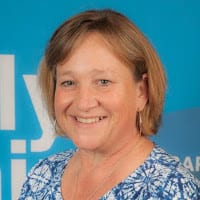
Jenny Froome is passionate about how supply chain management affects our lives on every level. Her original and now current profession is event management – the epitome of a well-honed supply chain. After many years working as COO of SAPICS – the professional body of supply chain management in South Africa she realized the importance of shining the light on the supply chains of Africa. Managing events such as the SAPICS annual conference, the People that Deliver Global Indaba, and the Africa Supply Chain Excellence Awards have truly allowed Jenny to combine her skills, knowledge, and community. Jenny’s lived all over the world and has settled in South Africa with her husband and many 4 legged friends while her sons are scattered around the world. Connect with Jenny on LinkedIn.

MJ Schoemaker has extensive End 2 End Supply Chain and Business excellence experience through 30 years of international corporate exposure at companies such as Ricoh, Lego, Janssen Pharmaceuticals, and Johnson and Johnson. She has held international Global Executive positions across the pillars of PLAN, MAKE, SOURCE, DELIVER including Director of Global Demand Management and Sales & Operations Planning Centre of Excellence as well as being a member of the board. MJ is often a speaker at international conferences on End 2 End Supply Chain and Business Excellence and is the President of the Board at SAPICS (Professional Body for Supply Chain Management). MJ has been interviewed on various radio and television interviews and has written various articles about the state of supply chain. During COVID-19 she was tasked to support the Western Cape as well as the Bill and Melinda Gates Foundation to ensure efficient delivery of chronic medication in South Africa during the COVID-19 pandemic. She is seen as an expert in the field of supply chain management and has her own consultancy to help businesses grow across the pillars of people, process, and technology. Connect with MJ on LinkedIn.
